Runaway Radical: A Young Man’s Reckless Journey to Save the World by Amy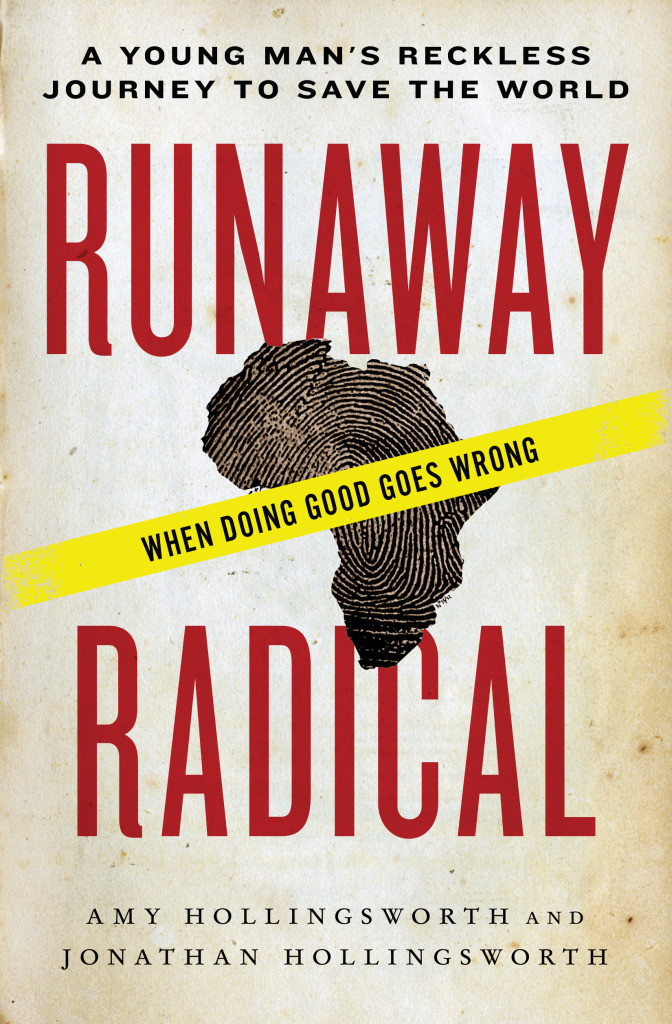 Hollingsworth and Jonathan Hollingsworth (Thomas Nelson – regularly $15.99) is a book that is very well written, exceptionally moving, of interest to many different sorts of readers, and, I think, is very, very important. I could hardly put it down, except when I had to stop to talk to Beth about it. (And boy, did it cause me to ponder, to pray, to confess, even. It struck fairly close to home, for some reasons I need not describe here.) I think it is the best book I’ve read so far this year.
Hollingsworth and Jonathan Hollingsworth (Thomas Nelson – regularly $15.99) is a book that is very well written, exceptionally moving, of interest to many different sorts of readers, and, I think, is very, very important. I could hardly put it down, except when I had to stop to talk to Beth about it. (And boy, did it cause me to ponder, to pray, to confess, even. It struck fairly close to home, for some reasons I need not describe here.) I think it is the best book I’ve read so far this year.
RR is a quick read, although one will want to ponder it, maybe talk with others about it. It is a book worth having, worth sharing. I want to describe it to you, dear H&M friends, as it is a fascinating story, co-written by a mother and her son, (itself a winning combination in this case as both are good writers, characters I’ve come to care about.) And both have a story to tell; do they ever! It’s a mother watching her son, and her son’s own recollections as his life goes haywire. The slogan on the cover shouts, “When Doing Good Goes Wrong.” Wow.
Of course, you can order this at our 20% off discount by clicking on the order form below, which takes you to our website’s secure order form page. I think that many BookNotes readers will be drawn to this wise and poignant book as the concerns it raises are, as we say, on your radar screen. I know they are very much on ours.
The subtitle gives a hint of what is to come: the young man, Jonathan, is drawn to a radical sort of missional faith, and is eager to show the world what genuine Christian compassion looks like. He has read books, attended conferences, come to realize that bland and ordinary faith pales in comparison to a lively, sacrificial, culturally-engaged discipleship, and that the fruit of such a radical vision is seen in serious acts of selflessness and caring outreach, showing love to the loveless, tending the wounds of the broken, befriending the homeless, serving the poor.
A youthful mission trip to Central America leaves him stunned, wanting to do more long term work to alleviate brutal poverty. He deepened his passion for such things, inspired by the likes of our friend Shane Claiborne who a few years ago was particularly known for calling on young evangelicals to give away their wealth and live among the poor, or the titular Radical: Taking Back Your Faith from the American Dream (David Platt) that pushed theologically conservative young adults to renounce the idols of the status and wealth and normalcy and give their lives to missionary service. Jonathan deepened his friendship with the local poor, gave even college money away, shaved his head as a sign of renunciation, and started a rigorous process of meditating on quotes from recent books — sources that some might call “radical Christianity” or new monasticism, perhaps.
Runaway Radical, you might surmise, doesn’t end well and you wouldn’t be far off in that judgment.
Although, actually, it ends beautifully — the eloquent, wise, painful and joyful last chapters are to be savored, maybe through tears; the Epilogue (“Saving the World”) is worth the price of the whole book. Jonathan is no longer the self assured, (arrogant?) evangelical solider with zeal and confrontational, hard truths, but humble, sobered, a bit tentative, even, with the tone, perhaps, of reoriented Hebrew faith after the exile — restored, yes, joyful, even, but a lot wiser for the wear.
To get to the end of this story, and to share this new found comfort being in a place of some woundedness and with no easy answers in sight, other then the confidence in God’s great mercy, one has to go through some exceptional weirdness and some very sorry stuff. His own interior life is transformed (not to mention those of his parents) as his missionary experience goes very wrong, he is abused by a toxic home church, his faith and much of his worldview dashed. The book unfolds wonderfully, bringing together these themes and chapters of his downward spiral, from his mother’s point of view and then in his own recounting. There are poignant and revealing journal entries and some lovely memoir – Amy recalling stories of Jonathan’s childhood, prayers the parents prayed for their children, questions he asked them as a child, the faith journey of Jonathan in high-school and his first year of college before he left to serve in Africa. Much of this will sound familiar to anyone who has watched the faith development of serious young Christians these days.
Amy, as the mother of this boy who grows increasingly religiously obsessed, is an excellent writer (and no stranger to the evangelical publishing world) and pours out her admiration and concern for her son. She sees the red flags, she notices some peculiar traits, but she also knows that great missionaries or social reformers of the past have appeared critical of a church or culture given to trivial pleasures or cultural accommodation or American nationalism. It is hard to argue when your son is writing quotes from the church fathers or Mother Theresa, Martin Luther King or heroic world missionaries on his bulletin board. Her telling of her own navigating all of Jonathan’s changes is itself part of the brilliance of this story and not to be missed. Any parent concerned about their children, I think, will resonate with much of this, and be glad for her pleasant memories and her shocking revelations.
The family’s faith seems to be a bit charismatic and they are part of a lively evangelical subculture, eager to follow the promptings of the Spirit. Despite the warning signs and the rather judgmental attitude their son develops, they are supportive. (How could they not be: she recounts wonderful memories of Jonathan’s tender conscience as a child; they have been attentive to his dreams, both his passions and interests, and the literal sort. More than once, Amy recalls and dissects haunting dreams with profound self-awareness.) There were moments in her narration that I was struck by what a good parent she seemed to be. She and her husband, despite Jonathan’s furious foray into a radical movement that proved to be unhealthy, can serve as good role models for how parents of young adults can accompany their adult children, and I commend the book for this reason, too.
For instance, she tell us,
One Sunday morning before church I began to pray for him. The kind of praying that starts out very noisy, then the words fail and trail off and you end up mostly listening. And what I heard was that my husband and I were to pray about whether Jonathan should take a year off school to serve overseas. Of course I didn’t remember at the time that Jonathan had predicted this, had asked for it two years before when he started college. A lot had happened between then and now, including the false starts and missteps. At the moment it wasn’t in Jonathan’s plans; he was filling out applications to transfer to a new college in the fall. I told my husband right away what I had heard in prayer, asking him to hold the arguments against the gap year until we had more time to talk about it. I had the same concerns. Leaving college midway doesn’t always end well. There was a real chance he wouldn’t finish his education. And the timing on previous attempts to go had always been off.
A few minutes later Jonathan came down for breakfast and he and Jeff were alone in the kitchen together. “Are you excited about starting a new college in the fall?” my husband asked. “No,” Jonathan answered. “I really think I’m supposed to take a year off to serve instead.”
In a paragraph on the next page she writes a simple observation that nearly brings me to tears as I re-read it now:
Then the whirlwind began. Inquiries were made, and the first agency he asked accepted him. The money was raised in six weeks. Every detail fell into place. It was the first of many milestones, the first of many lessons. It was also the year we learned the cruelest of paradoxes, that a young man can be both called and led astray.
I want to say a few things about this book, and the matters it raises, and we invite you to order it so you can see for yourself the beauty of the writing, the honesty of the narrative, and the significance of this conversation.
First, the way in which Jonathan became obsessed with his own wealth, his own need to show himself to be more literally committed to Christ’s ways, and his passion to make a difference in the world became harsh and twisted, and this distorted approach is discussed with raw integrity and much candor. As he tells it, he realizes now that he was stuck in a view that was “the antithesis of grace” and missed the truth that Christ came “to liberate us from the need to be radical.” I am not sure why he took to books like Radical and Crazy Love and The Irresistible Revolution, and then read them in such a legalistic and graceless manner, but he did. “If it was legalism that shut me out,” he finally writes near the end, “it was grace that snuck me in.” In many ways, this is the heart of the book — what some call “works righteousness” versus free grace. It is vital and sweet stuff, lessons hard learned, important for suburban moms and conventional, older pastors as well as culturally savvy and radically committed young adults.
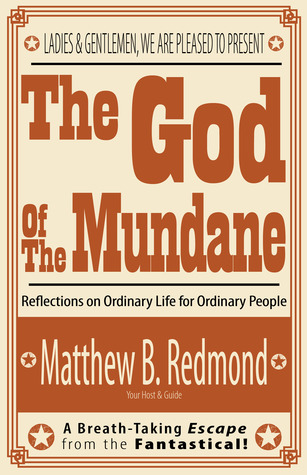
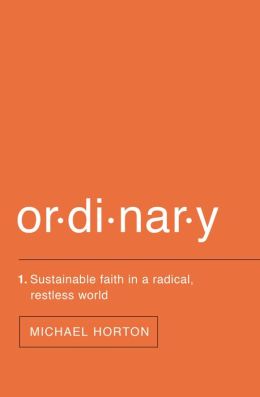 This is not the first book, by the way, that has named some of the problems of what may be a “new legalism” (as Anthony Bradley has called it) and the apparent disdain among many popular authors and leaders to an “ordinary” kind of faith. This is directly discussed in the new book by Michael Horton called Ordinary: Sustainable Faith in a Radical, Restless World (Zondervan; $15.99.) We have promoted here more than once the lovely little book called The God of the Mundane: Reflections on Ordinary Life for Ordinary People by Matthew Redmond (Kalos Press; $10.95) which anticipated some of these recent concerns and, to be honest, it is why I did the column a few weeks back on books that celebrate the common pleasures of life in God’s
This is not the first book, by the way, that has named some of the problems of what may be a “new legalism” (as Anthony Bradley has called it) and the apparent disdain among many popular authors and leaders to an “ordinary” kind of faith. This is directly discussed in the new book by Michael Horton called Ordinary: Sustainable Faith in a Radical, Restless World (Zondervan; $15.99.) We have promoted here more than once the lovely little book called The God of the Mundane: Reflections on Ordinary Life for Ordinary People by Matthew Redmond (Kalos Press; $10.95) which anticipated some of these recent concerns and, to be honest, it is why I did the column a few weeks back on books that celebrate the common pleasures of life in God’s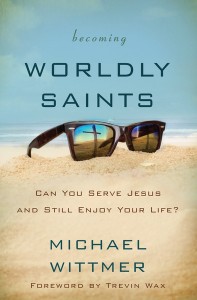 good creation, with titles such as Becoming Worldly Saints: Can You Serve Jesus and Still Enjoy Your Life? a must-read book by Michael Wittmer (Zondervan; $15.99.)
good creation, with titles such as Becoming Worldly Saints: Can You Serve Jesus and Still Enjoy Your Life? a must-read book by Michael Wittmer (Zondervan; $15.99.)
I could (and perhaps should) write much more about this, but I shall say this much for now: even though some have misinterpreted the call to resist the idols of our American culture and the need to serve and distorted it into a new more-radical-than-thou form of self-righteousness or a new kind of gruff legalism, we should not blame the call to fight poverty, to love the unlovable, to forge a church that is missional and outward focused, or those who offer those calls, for how some may misapply the challenge. Perhaps the call to the cost of discipleship in our time isn’t being given with enough joy and grace, making it easier for some listeners to turn it in unhealthy or self-destructive directions or to disturbing extremes. Still, we shouldn’t throw the baby out with the bathwater, here.
We don’t typically blame authors who call us to pray and stop promoting books about prayer when some oddballs start peculiar practices that turn intimacy with God into weird mysticisms. We don’t stop hoping for fruitful evangelism even though some are pushy and rude, and we still promote the best books on the subject, perhaps even more so, to counter the negative practices; we don’t quit searching for healthy and wholesome sexuality because some have turned to nasty negativity or liberal license. In each case, the possibility of somebody taking good books and twisting them into attitudes or lifestyles that are not intended by the authors shouldn’t keep us from pushing those ideas. Like anything, good ideas can be warped and lived out in unhealthy imbalance.
In other words, there is a lot of discussion we need to have, especially around this question of how countercultural our faith should be and in what contexts radical lifestyles should be pursued and in what ways a wise group of discerning friends in a local faith community can help us remain winsome and healthy even as we commit to serious sacrifices. Those of us who promote these sorts of books and invite people to more dedicated sorts of discipleship, especially around social concerns, need to be thinking about this, and we need to be talking about the possibility that we may be liable for leading impressionable younger adults astray if we don’t offer them a solid, grace-filled and healthy foundation out of which they can make life-transforming decisions. This book gives us a lot to ponder, so I commend it especially to those who work with younger adults, youth and campus ministers, and anyone involved in developing social activists or missionaries.
Such urgent conversations could be stimulated by Runaway Radical even though it isn’t the task of this memoir to give us a healthy and balanced and Biblically-wise view of how to go about joining the fight for a better world or what to think, theologically and practically, about stuff like John Perkins calling us to “relocate” or John Piper saying “risk is good” or Ron Sider calling us to a more simple lifestyle, inspired by the Bible’s demand for charity and justice. (I loudly praise God for Ron Sider and his Rich Christians in an Age of Hunger book, by the way, and will happily celebrate yet another new edition this summer. He is a mentor and model of a balanced, fair-minded approach to these matters.)
We dare not throw under the bus the jovial gadfly Shane Claiborne, The Simple Way and the new monastic movement, or activist authors like pastor Eugene Cho (Overrated), Chris Heuertz (Friendships at the Margins and Unexpected Gifts) Jeff Shinabarger (More or Less: Choosing a Lifestyle of Excessive Generosity,) Scott Bessenecker (The New Friars and Living Mission), Christine Caine (Undaunted and Unstoppable), Jeremy Courtney (Preemptive Love), Ken Wystma (Pursuing Justice: The Call to Live and Die for Greater Things) or the good folks at Mission Year, say, inviting young adults to a year of voluntary service where they can see, as their latest, wonderful book puts it, God is in the City: Encounters of Grace and Transformation (by Shawn Casselberry.) Who would ever want to silence the always whimsical, Jesus-centered, if sometimes audacious Bob Goff, author of the popular Love Does? I’m glad for extraordinary DVD curriculum like the World Vision produced Start. Or the compelling book by their director, Richard Stearns, The Hole in the Gospel. And glad for the publicity given in recent years to those who fight sexual trafficking through groups like A21, The International Justice Mission (IJM) or Not for Sale.
Mission), Christine Caine (Undaunted and Unstoppable), Jeremy Courtney (Preemptive Love), Ken Wystma (Pursuing Justice: The Call to Live and Die for Greater Things) or the good folks at Mission Year, say, inviting young adults to a year of voluntary service where they can see, as their latest, wonderful book puts it, God is in the City: Encounters of Grace and Transformation (by Shawn Casselberry.) Who would ever want to silence the always whimsical, Jesus-centered, if sometimes audacious Bob Goff, author of the popular Love Does? I’m glad for extraordinary DVD curriculum like the World Vision produced Start. Or the compelling book by their director, Richard Stearns, The Hole in the Gospel. And glad for the publicity given in recent years to those who fight sexual trafficking through groups like A21, The International Justice Mission (IJM) or Not for Sale.
Runaway Radical: A Young Man’s Reckless Journey… does not suggest that any of these authors or organizations knowingly misguided anyone, and I do not mean to imply that the Hollingsworths have given up on making a difference in this sad world, or blame any particular book or author for seducing Jonathan into his misguided Africa trip. But some readers might, so I say, again, that we shouldn’t throw these prophets in our midst under the bus. For my own part, I had to ask myself tough questions, since we have so promoted these exact kind of books, and have been eager to see these sorts of young voices picking up the causes of global justice. In my own years of campus ministry decades ago, I had these very kinds of conversations and figuring how to be grace-filled and balanced and sustained by Christ-like virtues as we engage the powers has been a long-standing concern of mine.
(I recall reading in the 70s something by John Stott about being a “conservative radical.” I love a book that we still stock by Ron Sider called I Am Not A Social Activist which is about keeping Jesus at the heart of our efforts for social transformation. There is no new legalism in these kinds of works, but many of us have struggled hard to keep this all in balance. It is in some respects, the heart of Steve Garber’s Visions of Vocation: Common Grace for the Common Good, that asks how we can love the broken world God so loves without growing bitter, jaded, cynical. Oh how I wish I could have pressed these into the hands of Jonathan years ago… and oh, how I will press the Hollingsworth’s RR book into the hands of the latest generation of young radicals.)
Recently, interestingly enough, I was interviewed by a reporter for a trade journal for the publishing industry, asking about changes we’ve seen in our 33 years of book-selling. One of the top changes on my list? Evangelicals robust and thoughtful and characteristically energetic embrace of the Biblical call for peace and justice, racial reconciliation and creation-care, grounded in a consistent ethic of life. What Sojourners and Evangelicals for Social Action were crying out about 40 years ago is now commonplace among most young evangelicals, and this is surely one of the most interesting sociological phenomenon of our lifetime. We should be very glad for this trend, a faithful move of young authors and leaders calling us to care, to take up serious work, and to be more involved than we often are in the call to help heal the broken, hurting world. I am glad for events like The Justice Conference or the sophisticated Urbana world missions conference and even the risky Christian Peacemaker Teams who are giving folks options for social involvement. (I am even more glad for the way our beloved Jubilee conference raises up equal passion for daily jobs and vocations in the marketplace and the arts, one of the great contributions they make to the feisty project of tapping fruitfully and wisely into youthful idealism and desire to “change the world.”)
So, to be clear: I am glad for these recent books about changing the world, serving the poor, working for social justice and such, even if our dear Jonathan recklessly misread or misapplied some of their challenging invitations. And we should, as perhaps Jonathan didn’t (the book’s greatest weakness is that it does not say) have wise friends around us, committed equally to social change, global justice, and balanced, beautiful, gracious, understandings of a mature interior life, that would help discern the ways in which we live into these big, big matters. I do not mean to digress to far afield, but this is why books that remind us of the communal and intimate nature of the local church are so important. Do you recall our discussion of Slow Church by Chris Smith and John Pattison last fall?
SPOILER ALERT
The self-destructive legalism and desire to prove to God that he was fully committed isn’t the only sad part of the story of Runaway Radical: A Young Man’s Reckless Journey to Save the World. A significant part of the story is a surprising twist in the plot: the mission agency in Cameroon where Jonathan goes is, to put it simply, corrupt. He sees abuse of funds, abuse of people — domestic violence and spiritual manipulation and emotional abuse. He cannot blow the whistle; he himself is seemingly caught in a nearly tragic situation. (Oh, the irony, that the Cameroon church leaders, all men, in that place, are preaching an extreme version of the false “prosperity gospel” and living large at the expense of their impoverished flocks. It is widely known that this troubling North American teaching has found significant inroads in many parts of the African church, and I was surprised that the Hollingsworth’s had apparently not adequately vetted this particular ministry or expected these sorts of troubles. How this mission agency was chosen is not explained although it becomes clear that it was connected to folks Jonathan knew, perhaps in the church in which he was involved. It is a slight hole in the narrative, but I suspect they are trying to be discreet and honorable. Throughout the book no names or authors or churches or ministries are named, which I suppose is to their credit.)
only sad part of the story of Runaway Radical: A Young Man’s Reckless Journey to Save the World. A significant part of the story is a surprising twist in the plot: the mission agency in Cameroon where Jonathan goes is, to put it simply, corrupt. He sees abuse of funds, abuse of people — domestic violence and spiritual manipulation and emotional abuse. He cannot blow the whistle; he himself is seemingly caught in a nearly tragic situation. (Oh, the irony, that the Cameroon church leaders, all men, in that place, are preaching an extreme version of the false “prosperity gospel” and living large at the expense of their impoverished flocks. It is widely known that this troubling North American teaching has found significant inroads in many parts of the African church, and I was surprised that the Hollingsworth’s had apparently not adequately vetted this particular ministry or expected these sorts of troubles. How this mission agency was chosen is not explained although it becomes clear that it was connected to folks Jonathan knew, perhaps in the church in which he was involved. It is a slight hole in the narrative, but I suspect they are trying to be discreet and honorable. Throughout the book no names or authors or churches or ministries are named, which I suppose is to their credit.)
The book has an active facebook page and Ms Hollingsworth has been writing a bit about the reception the book has gotten since its release just a few weeks ago. She is a lively and good writer, as I’ve said, and she is in communication with readers of all sorts. Not surprisingly, others have poured out their stories, she has said, telling their own tales of missionary service gone awry, mission agencies that have been abusive, and more. They are stories that need to be told.
There is a large shelf here at the bookstore of books of missionary biographies and autobiographies – some tell of evangelism and church planting, others talk of medical missions or social service efforts, and of course we have books about those who have started relief or development projects in the developing world. Some document the history of mainline denominational churches and their long-standing work (my friend Mark Englund-Krieger just released a history of Presbyterian (USA) missionary work called The Presbyterian Mission Enterprise: From Heathen to Partner) while others write of edgy, fresh projects, such as Kisses From Katie by Katie Davis which tells of her unusual solo journey to Uganda to adopt dozens of children or Preemptive Love by our friend Jeremy Courtney who is networking medical missionaries and others to perform life-saving pediatric surgeries in Iraq as they try to reform the complicated health care problems in a war torn, religiously conflicted land. A few tell about the great sacrifices and hardships endured, but end well. Or, maybe they don’t, and they are less sanguine then the success stories.
Few, though, so honestly share these kinds of stories of the really dark side of missions, the misappropriation of funds and the harsh treatment of incoming missionaries. Jonathan knew in his gut something was wrong when a building he was to work on was nonexistent, when the class he was to teach had just let out for the summer, when a large number of guitars that he had lovingly collected and personally shipped there for children were absconded for other uses. His hosts were strict bosses, even forbidding him to spend time at a nearby medical mission hospital as it was staffed by more mainline denominational Christians. Of course he wanted to be culturally sensitive to his new colleagues, submissive to their expectations of him, but he grew to believe that what they called “the African Way” was a crass justification for patriarchy and domestic violence. When they captured his visa and airline ticket home, he realized he was in some very deep trouble.
ANOTHER SPOILER ALERT
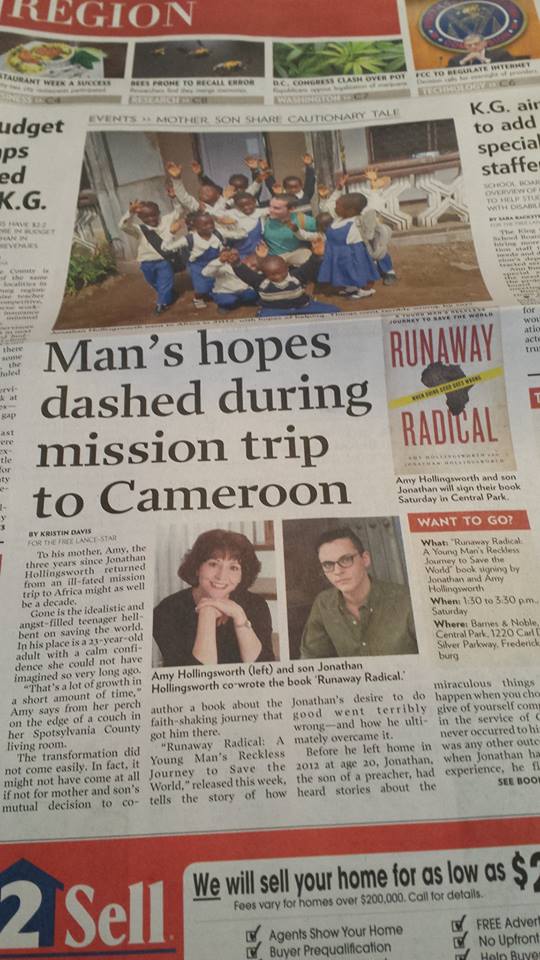 And so, the book continues — Jonathan telling of his experience in Cameroon, some of which is quite touching, occasionally delightful, even, while some becomes exceptionally disturbing. His mother shares her own memories of the sparse communications during those months, chapter by chapter they take turns, moving the narrative on.
And so, the book continues — Jonathan telling of his experience in Cameroon, some of which is quite touching, occasionally delightful, even, while some becomes exceptionally disturbing. His mother shares her own memories of the sparse communications during those months, chapter by chapter they take turns, moving the narrative on.
The story gets even more complicated and even uglier — oh my, can it possibly get worse? — when he arrives home to a toxic congregation, and strict orders from a head pastor to be utterly silent about the mistreatment of money and soul from the African mission leaders. The church was apparently committed to saving face and thought Jonathan was derelict for coming home prematurely, and did not appreciate at all he and his families concerns about misappropriation of money or the unbiblical, dangerous practices and dysfunction so prevalent at the mission compound. I needn’t explain it all here, but this harsh stuff back home in his Maryland sending congregation is demoralizing and infuriating. They tell the story well, and with a fair amount of grace and balance — I think other writers might have justifiably shown more bitterness. It is not a tell-all screed, but the manipulation and mistreatment back home is an important part of the story, and another contribution to the struggle about faith in this young man’s life. So they report it and at times it feels surreal. They bring you effectively into their world as only the best writers can.
This RR book, then, is about three big things — and a fourth.
First, it is about this radical movement of idealistic, costly discipleship which seems to be being understood by some as extreme, lacking in grace, a new Pharisee-ism. These books are being read by many young adults, inspiring some to a zealous and sacrificial dedication that is both exemplary and distressing. It is explored mostly not in the abstract as a theological movement, but as a set of influences that played havoc in the tender soul of this one young man. It is, after all, a memoir (in two voices) and you learn about Jonathan, less about the books and ideas and movement which informed him.
Secondly, Runaway Radical is about the experience of a missionary compound, staffed by indigenous folks in Cameroon, which was heterodox and dysfunctional at best, and toxic and dangerous at worst. Few mission stories speak of this down side, and it is as revealing as it is riveting.
Thirdly it is a bit about an unforgiving and manipulative church leadership team that did not offer support, let alone grace, to the troubled and hurting young man that came home broken from his failed missionary call. That some churches are grossly inadequate in welcoming home missionaries is known in the biz. That they would be manipulative and dishonest and threatening is tragic. This proved to be a “final straw” that broke dear Jonathan and outraged his parents, but they do not outline too much about this. If the book ended here it would be a very good book, honest and informative, enjoyable, if distressing. But it becomes a truly great book because of the final, fourth theme.
And it is this: heavy-handed, black and white thinking of the aggressive sort that guided the fiery young man’s faith left little room for doubt, let alone failure. Yet, in his journey into tough questions, a failed discernment of his call, and his experience of spiritual abuse at the hands of fundamentalists, he has emerged with a sober, gentle, and lighter sort of faith. He has not renounced the gospel, he has come to understand it more profoundly.
fiery young man’s faith left little room for doubt, let alone failure. Yet, in his journey into tough questions, a failed discernment of his call, and his experience of spiritual abuse at the hands of fundamentalists, he has emerged with a sober, gentle, and lighter sort of faith. He has not renounced the gospel, he has come to understand it more profoundly.
Some will applaud his new, tentative if grace-based faith, while others will fret that he has shifted towards a more ambiguous, less didactic and certain form of faith. He laughs more, now, it seems, and is healing. He is moving on. Neither mother or son seem cynical, even though they have reason to be. The book’s call to this more open-minded and grace-filled approach is beautifully rendered and the book ends well.
You will have to go along with the Hollingsworths on their journey, the ups and downs, and live the Paschal rhythm with them, I think, to see for yourself. Can this death of a previous faith be the fertile soil for new birth? Can a more sustainable faith rise out of the shell of the old? What is better, too much confidence or too little? Tight fists grasping onto truth or open hands? This is the old, old story, or so it seems to me — life from death, resurrection after crucifixion. Runaway Radical: A Young Mans Reckless Journey to Save the World is a great book to read in this Lenten season, and it is a revealing study of serious faith, serious global needs, serious misunderstandings and confusions, and serious, glad, if less ambitious, new understandings of faith, and renewed appreciation for grace. What a story, so well told!

BookNotes
DISCOUNT
ANY ITEM MENTIONED
20% off
order here
takes you to the secure Hearts & Minds order form page
just tell us what you want
inquire here
if you have questions or need more information
just ask us what you want to know
Hearts & Minds 234 East Main Street Dallastown, PA 17313 717-246-3333

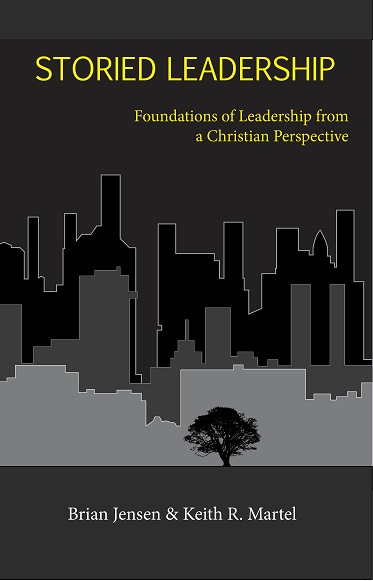
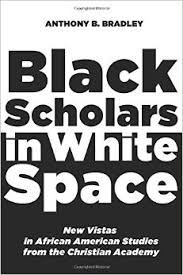 conservative, Reformed theologian and public intellectual who has written widely about racial injustices, black theology, and just released a volume he edited, Black Scholars in White Space: New Vistas in African American Studies from the Christian Academy [Wipf & Stock; $26.00.] that includes pieces by a number of African American scholars and leaders in higher education, including some who were at Jubilee.
conservative, Reformed theologian and public intellectual who has written widely about racial injustices, black theology, and just released a volume he edited, Black Scholars in White Space: New Vistas in African American Studies from the Christian Academy [Wipf & Stock; $26.00.] that includes pieces by a number of African American scholars and leaders in higher education, including some who were at Jubilee.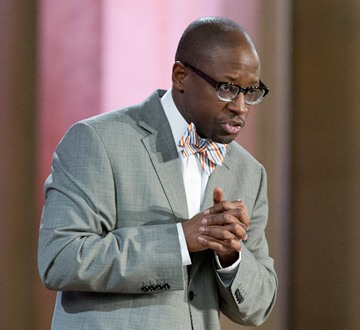 political life, we are to honor God by opening up the potentials of the created order, designed and upheld by the Triune God of the Bible.
political life, we are to honor God by opening up the potentials of the created order, designed and upheld by the Triune God of the Bible. 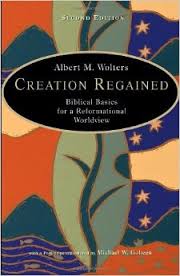 ones on the fall, and redemption) helps frame the conference. His chapter on discerning God’s creational ordinances, in contrast to the distorting and disfiguring misdirection caused by sin, idols and ideologies — he uses the distinctions between “structure” and “direction” which is to say that we must know what is good, ordered by God and creation and what is sinfully off, twisted, not as it is supposed to be — is nothing short of brilliant. It was great to hear Dr. Anthony Bradley preach around these themes, knowing he is familiar with this key text, Creation Regained. That Dr. Bradley is one of the stars of the For the Life of the World DVD didn’t hurt, either. That DVD is so, so solid on this very matter.
ones on the fall, and redemption) helps frame the conference. His chapter on discerning God’s creational ordinances, in contrast to the distorting and disfiguring misdirection caused by sin, idols and ideologies — he uses the distinctions between “structure” and “direction” which is to say that we must know what is good, ordered by God and creation and what is sinfully off, twisted, not as it is supposed to be — is nothing short of brilliant. It was great to hear Dr. Anthony Bradley preach around these themes, knowing he is familiar with this key text, Creation Regained. That Dr. Bradley is one of the stars of the For the Life of the World DVD didn’t hurt, either. That DVD is so, so solid on this very matter. 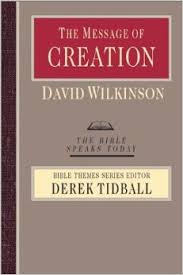 The Bible Speaks Today: The Message of Creation: Encountering the Lord of the Universe David Wilkinson (IVP Academic) $20.00 I trust you know the commentary series “The Bible Speaks Today.” In recent years they have branched out, doing Biblical exegesis, as you would find in a solid, mid-range, useful commentary, in books about a theme. This one, systematically commenting on all the Biblical texts about or alluding to creation, is extraordinarily useful as this Bible scholar traces the theme of creation through the rich tapestry of Scripture and brings it into lively conversation with contemporary concerns. There is even a several week Bible study guide in the back making this ideal for small groups or adult Christian education classes.
The Bible Speaks Today: The Message of Creation: Encountering the Lord of the Universe David Wilkinson (IVP Academic) $20.00 I trust you know the commentary series “The Bible Speaks Today.” In recent years they have branched out, doing Biblical exegesis, as you would find in a solid, mid-range, useful commentary, in books about a theme. This one, systematically commenting on all the Biblical texts about or alluding to creation, is extraordinarily useful as this Bible scholar traces the theme of creation through the rich tapestry of Scripture and brings it into lively conversation with contemporary concerns. There is even a several week Bible study guide in the back making this ideal for small groups or adult Christian education classes.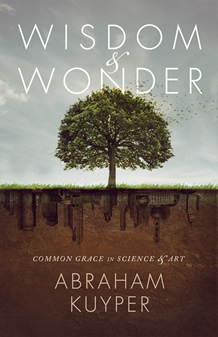 Wisdom and Wonder: Common Grace in Science and Art Abraham Kuyper (Christian’s Library Press) $14.99 The spectacular Saturday night speaker at Jubilee, Jon Tyson, co-wrote (along with Gabe Lyon) an excellent foreword to this recently translated book which was written in Dutch in the early 20th century by the famed Dutch theologian and statesman. Jubilee conference friend and regular speaker there Vincent Bacote wrote the very helpful introduction. This is Kuyper explaining more about common grace and the goodness of creation, especially as a key to understanding a Christian view of work in the sciences and in the arts. To think this rich work was written more than 100 years ago and is still relevant for those who want to dig deep for a sure-footed foundation.
Wisdom and Wonder: Common Grace in Science and Art Abraham Kuyper (Christian’s Library Press) $14.99 The spectacular Saturday night speaker at Jubilee, Jon Tyson, co-wrote (along with Gabe Lyon) an excellent foreword to this recently translated book which was written in Dutch in the early 20th century by the famed Dutch theologian and statesman. Jubilee conference friend and regular speaker there Vincent Bacote wrote the very helpful introduction. This is Kuyper explaining more about common grace and the goodness of creation, especially as a key to understanding a Christian view of work in the sciences and in the arts. To think this rich work was written more than 100 years ago and is still relevant for those who want to dig deep for a sure-footed foundation.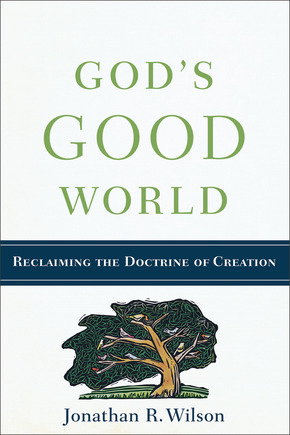 God’s Good World: Reclaiming the Doctrine of Creation Jonathan R. Wilson (Baker Academic) $25.00 I raved and raved about this when it came out in 2013 and continue to think it is one of the more helpful (and important) books of its kind. There are large implications for the robust Biblical view of creation, and this explores many of them. It is serious, but just wonderfully written (and even includes some artistic touches, which are not incidental.)
God’s Good World: Reclaiming the Doctrine of Creation Jonathan R. Wilson (Baker Academic) $25.00 I raved and raved about this when it came out in 2013 and continue to think it is one of the more helpful (and important) books of its kind. There are large implications for the robust Biblical view of creation, and this explores many of them. It is serious, but just wonderfully written (and even includes some artistic touches, which are not incidental.) 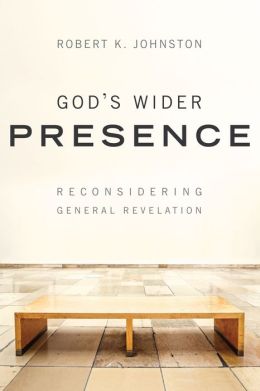 God’s Wider Presence: Reconsidering General Revelation Robert K. Johnston (Baker Academic) $25.99 Here is how the publisher describes this outstanding recent work: ” a senior theologian explores how Christians are to understand the wider revelatory presence of God, mediated outside the church through creation, conscience, and culture.” You should know that Johnston wrote a book years ago on play, and has written three very influential, insightful books on film. He understands that the fruits of human culture — modern cinema, for instance — functions in the world graced by God, and is, in many ways, a good example of the implications of a high doctrine of creation.
God’s Wider Presence: Reconsidering General Revelation Robert K. Johnston (Baker Academic) $25.99 Here is how the publisher describes this outstanding recent work: ” a senior theologian explores how Christians are to understand the wider revelatory presence of God, mediated outside the church through creation, conscience, and culture.” You should know that Johnston wrote a book years ago on play, and has written three very influential, insightful books on film. He understands that the fruits of human culture — modern cinema, for instance — functions in the world graced by God, and is, in many ways, a good example of the implications of a high doctrine of creation. 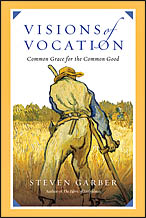 only realize the good news of the gospel, how we are forgiven in Christ and made new by His Spirit, and invited into the new community called the church, but how this narrative of creation/fall/redemption makes sense of our world. As Steve Garber often suggests in his must-read Visions of Vocation: Common Grace for the Common Good this is the world we live in. It is a world of wonder, true, but also a world of ache, and we need the gospel not only to save us from ourselves but because in the Scriptural story, we get the “truest truths of the universe.” If we are to take up our callings in the world with any integrity and longevity, we need these visions, and these visions come from the greatest story every told, which is also the truest.
only realize the good news of the gospel, how we are forgiven in Christ and made new by His Spirit, and invited into the new community called the church, but how this narrative of creation/fall/redemption makes sense of our world. As Steve Garber often suggests in his must-read Visions of Vocation: Common Grace for the Common Good this is the world we live in. It is a world of wonder, true, but also a world of ache, and we need the gospel not only to save us from ourselves but because in the Scriptural story, we get the “truest truths of the universe.” If we are to take up our callings in the world with any integrity and longevity, we need these visions, and these visions come from the greatest story every told, which is also the truest. 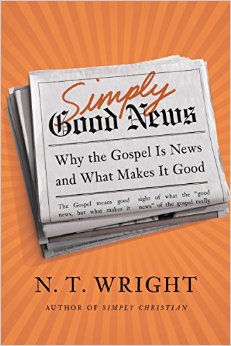 Simply Good News: Why the Gospel Is News and What Makes it Good (HarperOne; $24.99) really does help us see how this narrative of the Kingdom coming simply must shape and direct our lives. After that, if you haven’t, be sure to read his How God Became King (HarperCollins; $24.99) and his much-discussed
Simply Good News: Why the Gospel Is News and What Makes it Good (HarperOne; $24.99) really does help us see how this narrative of the Kingdom coming simply must shape and direct our lives. After that, if you haven’t, be sure to read his How God Became King (HarperCollins; $24.99) and his much-discussed 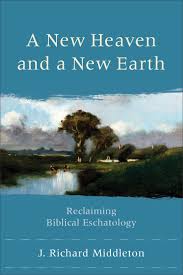 own blog
own blog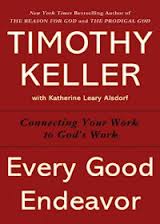 whose callings take them into sophisticated professional careers, the next step in all of this is to take this story of all of life redeemed and do a lot of thinking about what all that means for the particulars of our work lives and the work-places we inhabit. It is essential to know the doctrine of vocation and calling from visionary books like The Call: Finding and Fulfilling the Central Purpose of Your Life by Os Guinness (Nelson; $17.99) to theologically substantive but practical books like Work Matters: Connecting Sunday Faith to Monday Work by Tom Nelson (Crossway; $150.99) or Every Good Endeavor: Connecting Your Work to God’s Work by Timothy Keller (Dutton; $16.00) or others I describe at
whose callings take them into sophisticated professional careers, the next step in all of this is to take this story of all of life redeemed and do a lot of thinking about what all that means for the particulars of our work lives and the work-places we inhabit. It is essential to know the doctrine of vocation and calling from visionary books like The Call: Finding and Fulfilling the Central Purpose of Your Life by Os Guinness (Nelson; $17.99) to theologically substantive but practical books like Work Matters: Connecting Sunday Faith to Monday Work by Tom Nelson (Crossway; $150.99) or Every Good Endeavor: Connecting Your Work to God’s Work by Timothy Keller (Dutton; $16.00) or others I describe at  to Academic Faithfulness by Donald Opitz and Derek Melleby (Brazos Press; $14.99.)
to Academic Faithfulness by Donald Opitz and Derek Melleby (Brazos Press; $14.99.) discipline or career area — health care, business, architecture, video game design, psychology, counseling, art, music, theater, writing, math, engineering, education, social work, law, economics, sociology, advertising, family studies, child development, sports, outdoors education, physical therapy, urban design, computers, history?
discipline or career area — health care, business, architecture, video game design, psychology, counseling, art, music, theater, writing, math, engineering, education, social work, law, economics, sociology, advertising, family studies, child development, sports, outdoors education, physical therapy, urban design, computers, history?  Storied Leadership is easy to read, and not long, but it is deceptive in its breezy conversational style and upbeat illustrations and stories from their own colorful lives. Not every book that so easily captivates readers with good writing, whimsical and moving stories — sneaking out of children’s church to listen to Casey Kasem, getting to know a small town luthier who restores old guitars, leading outdoor wilderness trips, having heart to heart tender talks with their
Storied Leadership is easy to read, and not long, but it is deceptive in its breezy conversational style and upbeat illustrations and stories from their own colorful lives. Not every book that so easily captivates readers with good writing, whimsical and moving stories — sneaking out of children’s church to listen to Casey Kasem, getting to know a small town luthier who restores old guitars, leading outdoor wilderness trips, having heart to heart tender talks with their 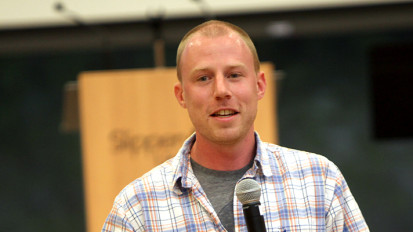 children — also offers a substantive, serious biblical theology. But this book does both; it is chock full of gratifying episodes, helpful insights drawn from crazy stories, and truly wise comments (not to mention a few wise cracks) as it offers what has to be called a robust, narrative, Christian theology. Perhaps I could say it offers a subtle, Biblically-informed, Christian philosophy. (They quote, most helpfully, the Dutch Kuyperian philosopher, Herman Dooyeweerd, for crying out loud, which gives it away as a particularly thoughtful project.) Like I say, this is a fun, but serious work.
children — also offers a substantive, serious biblical theology. But this book does both; it is chock full of gratifying episodes, helpful insights drawn from crazy stories, and truly wise comments (not to mention a few wise cracks) as it offers what has to be called a robust, narrative, Christian theology. Perhaps I could say it offers a subtle, Biblically-informed, Christian philosophy. (They quote, most helpfully, the Dutch Kuyperian philosopher, Herman Dooyeweerd, for crying out loud, which gives it away as a particularly thoughtful project.) Like I say, this is a fun, but serious work.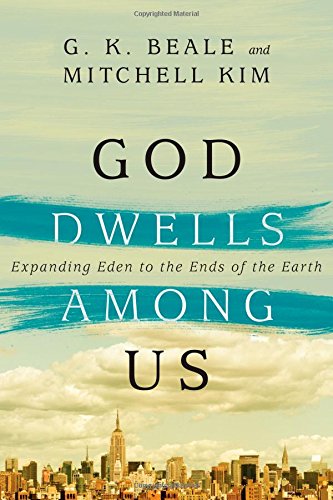
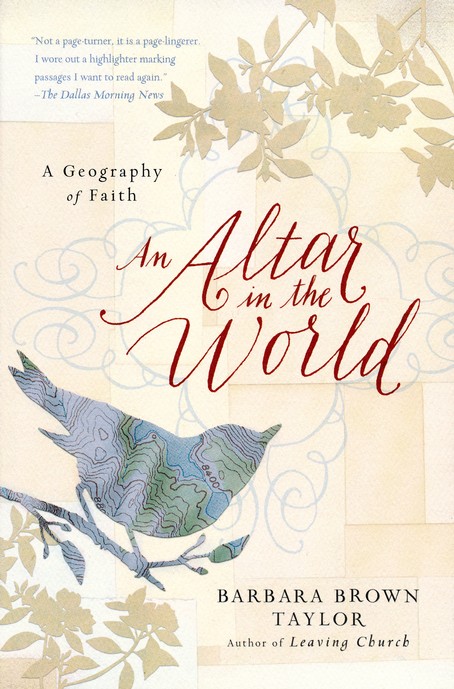
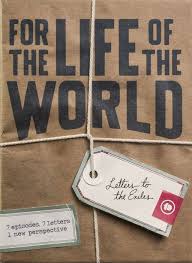

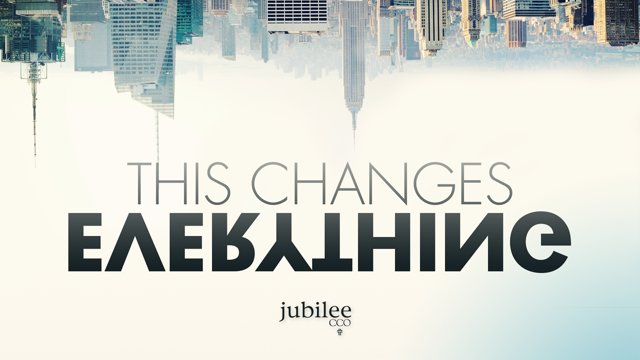 biggest thing we do all year (with 3000+ college students drawn together in Pittsburgh by the
biggest thing we do all year (with 3000+ college students drawn together in Pittsburgh by the 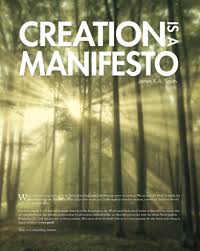 Smith, Skye Jethani, Vincent Bacote and Diane Paddison, a significant book list Beth and I curated, and a bunch of ads from innovative mission and educational organizations. Not to mention descriptions of all the speakers and workshops. It’s really worth seeing. And do notice that book list – good stuff, in several key categories.
Smith, Skye Jethani, Vincent Bacote and Diane Paddison, a significant book list Beth and I curated, and a bunch of ads from innovative mission and educational organizations. Not to mention descriptions of all the speakers and workshops. It’s really worth seeing. And do notice that book list – good stuff, in several key categories.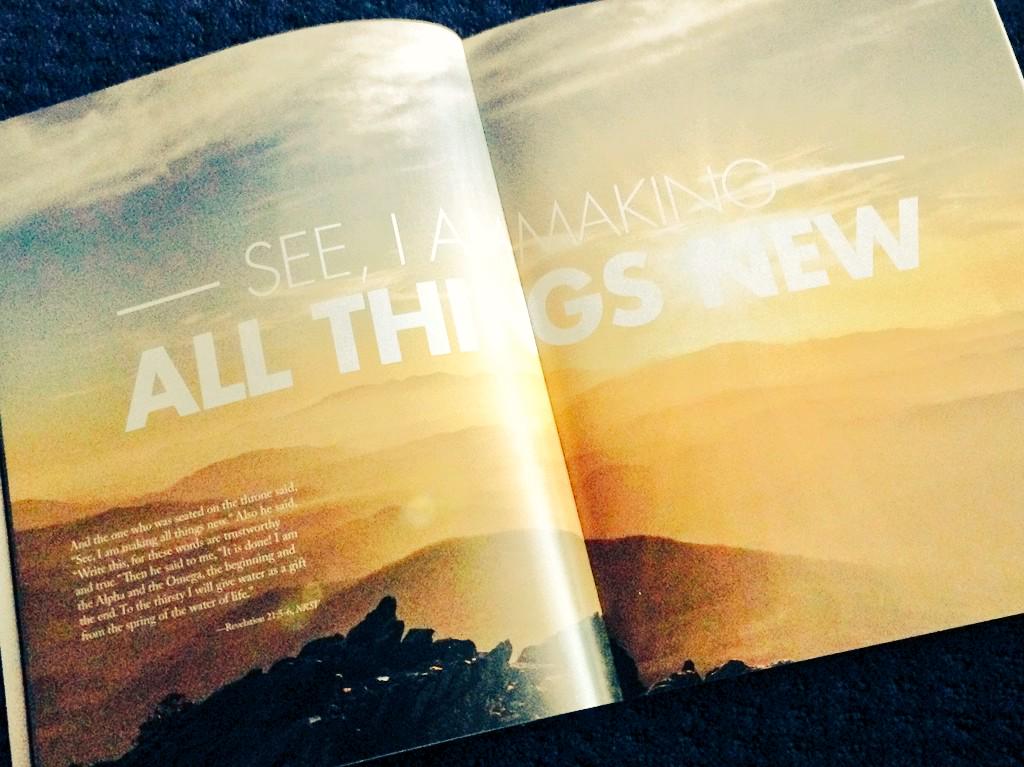
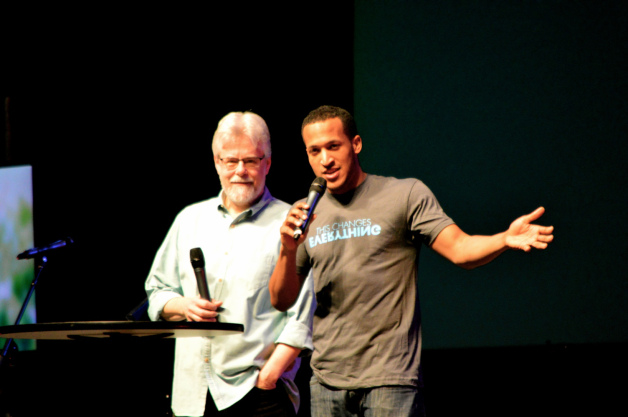

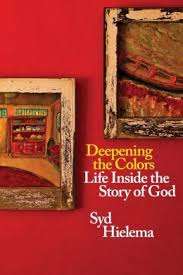 Deepening the Colors: Life Inside the Story of God
Deepening the Colors: Life Inside the Story of God 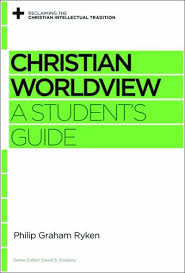 Christian Worldview: A Student’s Guide
Christian Worldview: A Student’s Guide 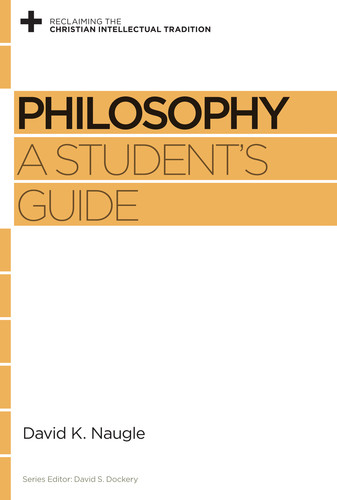 Philosophy: A Student’s Guide
Philosophy: A Student’s Guide 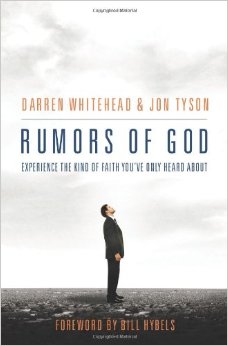 Rumors of God: Experience the Kind of Faith You’ve Only Heard About Jon Tyson & Darren Whitehead (Nelson) $15.99 Between Beth and I we have been to every Jubilee since the founding of the conference in the late 70s and have heard most of the major addresses there. After Tyson’s 2015 Saturday night talk, I exclaimed that this was the best one-time presentation that explains the theological overview of Jubilee in the history of the conference. With his clear-headed, no-nonsense style, it wasn’t, perhaps, the most passionate or the funniest or the most immediately stunning. But, it was exceptionally well received and I think both students and old-timers new this was as historic moment. With tears running down my cheeks I joined others in the holy applause. Faith does relate to all of life, and the lack of a robust vision based on the Biblical scope of Christ’s redemption will continue to haunt us if we don’t grasp these bigger, transforming truths. I’ve been a fan of Tyson and his Trinity Grace church work in New York. His Aussie accent is cool, too. This is his only book, a wonderful overview of Christian faith made real for today. The video of the Jubilee talk will be up at the Jubilee website before too long, I trust, and that content isn’t exactly spelled out simply in this volume. But this is a great, great book, and we were happy to promote it at Jubilee.
Rumors of God: Experience the Kind of Faith You’ve Only Heard About Jon Tyson & Darren Whitehead (Nelson) $15.99 Between Beth and I we have been to every Jubilee since the founding of the conference in the late 70s and have heard most of the major addresses there. After Tyson’s 2015 Saturday night talk, I exclaimed that this was the best one-time presentation that explains the theological overview of Jubilee in the history of the conference. With his clear-headed, no-nonsense style, it wasn’t, perhaps, the most passionate or the funniest or the most immediately stunning. But, it was exceptionally well received and I think both students and old-timers new this was as historic moment. With tears running down my cheeks I joined others in the holy applause. Faith does relate to all of life, and the lack of a robust vision based on the Biblical scope of Christ’s redemption will continue to haunt us if we don’t grasp these bigger, transforming truths. I’ve been a fan of Tyson and his Trinity Grace church work in New York. His Aussie accent is cool, too. This is his only book, a wonderful overview of Christian faith made real for today. The video of the Jubilee talk will be up at the Jubilee website before too long, I trust, and that content isn’t exactly spelled out simply in this volume. But this is a great, great book, and we were happy to promote it at Jubilee. 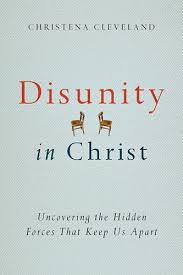 Disunity in Christ: Uncovering the Hidden Forces That Keep Us Apart
Disunity in Christ: Uncovering the Hidden Forces That Keep Us Apart 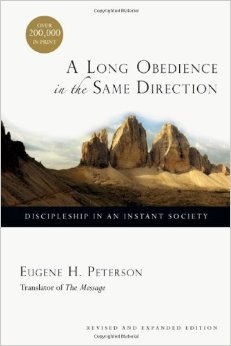 A Long Obedience in the Same Direction: Discipleship in an Instant Society
A Long Obedience in the Same Direction: Discipleship in an Instant Society 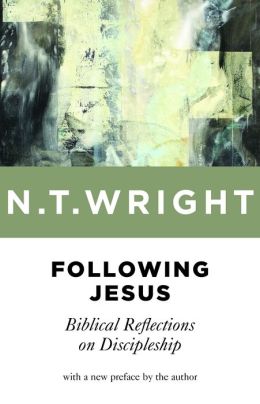 Following Jesus: Biblical Reflections on Discipleship
Following Jesus: Biblical Reflections on Discipleship 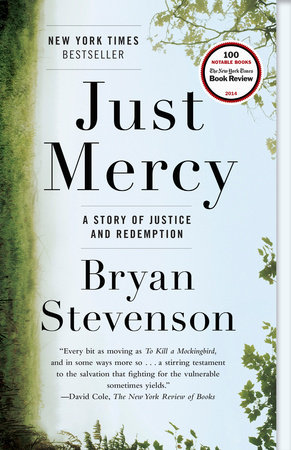 Just Mercy: A Story of Justice and Redemption Bryan Stevenson (Spiegel & Grau) $28.00 I raved about this serious book when it first came out this fall, took it too a few conferences where I routinely said it was one of the most gripping and page-turning books I’ve ever read. I sometimes noted that — even though he is now famous, reviewed in the national press, on NPR, having done impressive TED talks and such, we first met Bryan a number of years ago when our friend Tony Campolo suggested him as a speaker for Jubilee. Stevenson’s eloquent, passionate presentation about racial injustices in the racially-tainted systems of criminal justice, and his concerns about what has become known as mass incarceration, was game-changing for some of us. His story of graduating from a small Christian college and then from Harvard Law School and then serving in a small, non-profit legal aid clinic was inspiring to young students wondering how their own callings and careers might develop. Now that his book is out, on a prestigious publishing house, we can be very, very grateful. We of course had a big stack of these at Jubilee, and I only wish I could have talked to more students about his own Jubilee connections. One of the most urgent books of our time, by a real-life Atticus Finch.
Just Mercy: A Story of Justice and Redemption Bryan Stevenson (Spiegel & Grau) $28.00 I raved about this serious book when it first came out this fall, took it too a few conferences where I routinely said it was one of the most gripping and page-turning books I’ve ever read. I sometimes noted that — even though he is now famous, reviewed in the national press, on NPR, having done impressive TED talks and such, we first met Bryan a number of years ago when our friend Tony Campolo suggested him as a speaker for Jubilee. Stevenson’s eloquent, passionate presentation about racial injustices in the racially-tainted systems of criminal justice, and his concerns about what has become known as mass incarceration, was game-changing for some of us. His story of graduating from a small Christian college and then from Harvard Law School and then serving in a small, non-profit legal aid clinic was inspiring to young students wondering how their own callings and careers might develop. Now that his book is out, on a prestigious publishing house, we can be very, very grateful. We of course had a big stack of these at Jubilee, and I only wish I could have talked to more students about his own Jubilee connections. One of the most urgent books of our time, by a real-life Atticus Finch.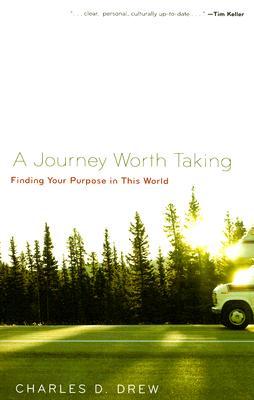 A Journey Worth Taking: Finding Your Purpose in This World
A Journey Worth Taking: Finding Your Purpose in This World 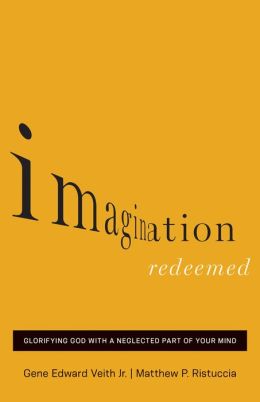 Imagination Redeemed: Glorifying God with a Neglected Part of Your Mind
Imagination Redeemed: Glorifying God with a Neglected Part of Your Mind 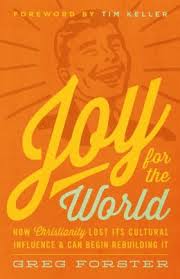 Joy To The World: How Christianity Lost Its Cultural Influence and Can Begin to Rebuild It
Joy To The World: How Christianity Lost Its Cultural Influence and Can Begin to Rebuild It 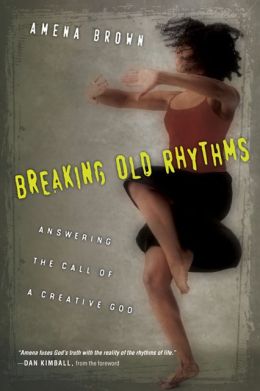 Breaking Old Rhythms: Answering the Call to a Creative God
Breaking Old Rhythms: Answering the Call to a Creative God 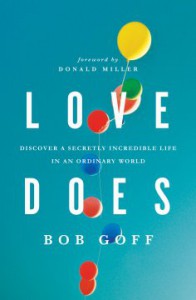 Love Does: Discovering a Secretly Incredible Life in an Ordinary World
Love Does: Discovering a Secretly Incredible Life in an Ordinary World 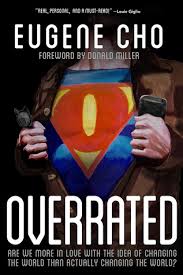 Overrated: Are We More in Love With the Idea of Changing the World Than Actually Changing the World? Eugene
Overrated: Are We More in Love With the Idea of Changing the World Than Actually Changing the World? Eugene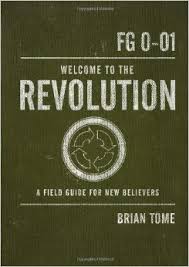 Welcome to the Revolution: A Field Guide for New Believers
Welcome to the Revolution: A Field Guide for New Believers 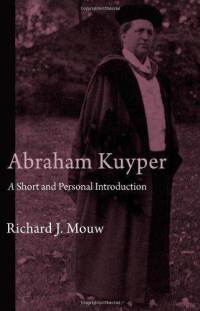 Abraham Kuyper: A Short and Personal Introduction
Abraham Kuyper: A Short and Personal Introduction 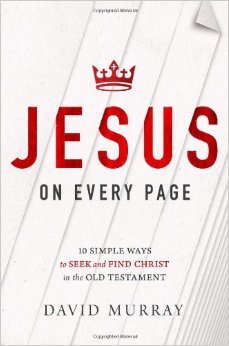 Jesus on Every Page: 10 Simple Ways to Seek and Find Christ in the Old Testament
Jesus on Every Page: 10 Simple Ways to Seek and Find Christ in the Old Testament 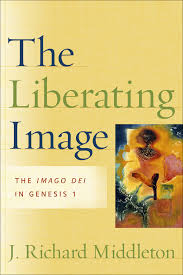 The Liberating Image: The Imago Dei in Genesis 1
The Liberating Image: The Imago Dei in Genesis 1 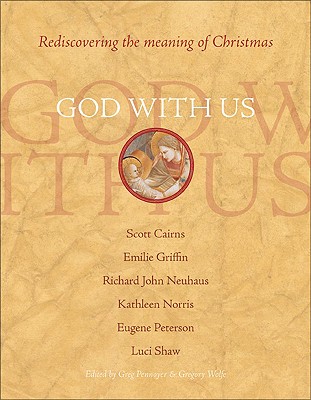 and it became our biggest selling item during Advent. We have raved each year about the very handsome, artful, mature volume, and said important about it was that it “emerged from the mature writing in the pages of our best literary journal, Image, a sophisticated, faith-based quarterly of literature and art and criticism; Pennoyer & Wolfe are extraordinary thinkers and writers themselves, and have put together what is without a doubt one of the most glorious books you could own. (Except, perhaps for the long-awaiting, luxurious sequel, God For Us: Rediscovering the Meaning of Lent and Easter which Paraclete released this past Spring…”
and it became our biggest selling item during Advent. We have raved each year about the very handsome, artful, mature volume, and said important about it was that it “emerged from the mature writing in the pages of our best literary journal, Image, a sophisticated, faith-based quarterly of literature and art and criticism; Pennoyer & Wolfe are extraordinary thinkers and writers themselves, and have put together what is without a doubt one of the most glorious books you could own. (Except, perhaps for the long-awaiting, luxurious sequel, God For Us: Rediscovering the Meaning of Lent and Easter which Paraclete released this past Spring…”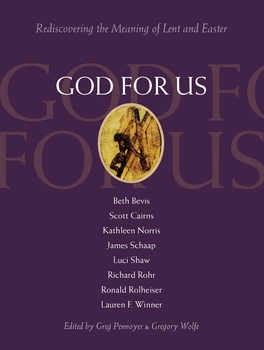
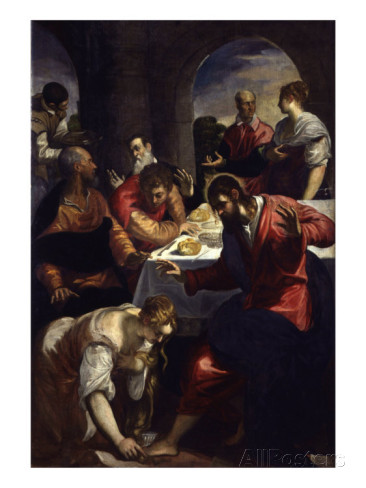 marker, includes very nice short pieces on the history of various customs and Feast Days within the time of Lent. Beth Bevis offers more than a dozen of these extra one page ruminations that are delightful and inspiring, perhaps especially for those of us not accustomed to thinking much about Shrove Tuesday, the Annunciation, Maundy Thursday or Holy Saturday.
marker, includes very nice short pieces on the history of various customs and Feast Days within the time of Lent. Beth Bevis offers more than a dozen of these extra one page ruminations that are delightful and inspiring, perhaps especially for those of us not accustomed to thinking much about Shrove Tuesday, the Annunciation, Maundy Thursday or Holy Saturday. book.
book. 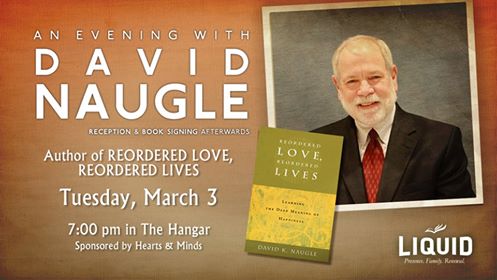
 the Philly born, Swiss Francis Schaeffer to Wheaton-area James Sire, from Scottish James Orr, to American Charles Colson and Nancy Pearcey to so many more, the word has been used, mis-used, abused, tweaked and written about, celebrated and criticized (think of Jamie Smith, just for instance) and Naugle’s Worldview: The History of a Concept (Eerdmans; $34.00) tells you all you need to know, and more. It is fascinating, a major contribution to Christian and Reformed cultural studies, and we are, as you might guess, true fans.
the Philly born, Swiss Francis Schaeffer to Wheaton-area James Sire, from Scottish James Orr, to American Charles Colson and Nancy Pearcey to so many more, the word has been used, mis-used, abused, tweaked and written about, celebrated and criticized (think of Jamie Smith, just for instance) and Naugle’s Worldview: The History of a Concept (Eerdmans; $34.00) tells you all you need to know, and more. It is fascinating, a major contribution to Christian and Reformed cultural studies, and we are, as you might guess, true fans.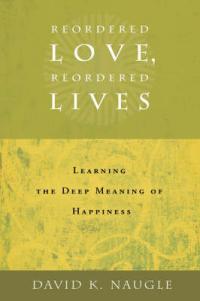
 leaders in all of church history, beloved (mostly) by Protestants, Catholics and Orthodox alike,
leaders in all of church history, beloved (mostly) by Protestants, Catholics and Orthodox alike,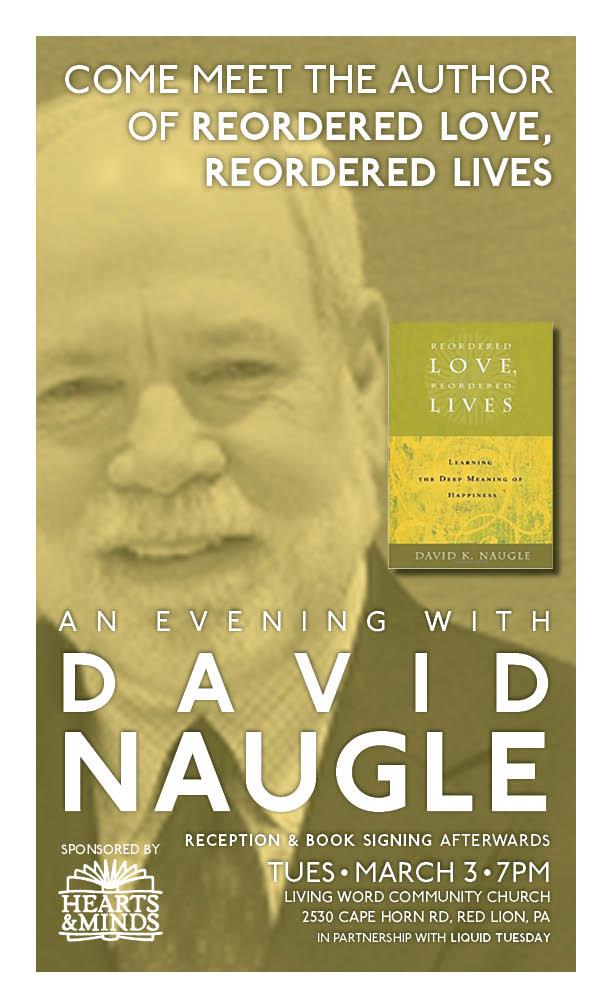
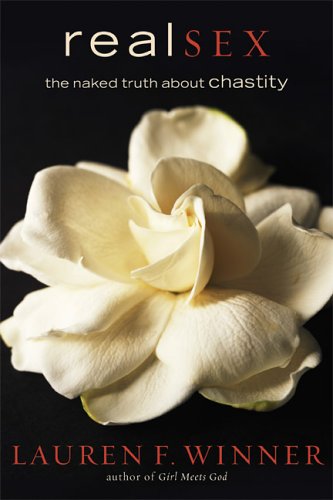 have no interest in finding anything redemptive about the Fifty Shades books and movie, I have been asked by a few customers to write about sexuality, or at least to write about books about sexuality. We’ve done that before, and we have a wide and hearty selection here at the shop, from a wide spectrum of views within the church universal. We still think Lauren Winner’s Real Sex: The Naked Truth About Chastity (Brazos Books; $14.99) is a must read. We just got in Damaged Goods: New Perspectives on Christian Purity by Dianna E. Anderson (Jericho Books; $18.00) a book that is complicated — I really, really appreciate much of it. She shows the troubling consequences and even weirdness of some of the evangelical fetish about sexual purity, what with the daddy daughter dances and sexual purity rings given to tweeners and tedious courtship rituals and gender assumptions and a whole ton of shame. But, I also think some of it seems pretty muddled, perhaps the proverbial pendulum swinging a bit in over-reaction… Of course, there are some progressive Christian feminists who are fairly conventional in
have no interest in finding anything redemptive about the Fifty Shades books and movie, I have been asked by a few customers to write about sexuality, or at least to write about books about sexuality. We’ve done that before, and we have a wide and hearty selection here at the shop, from a wide spectrum of views within the church universal. We still think Lauren Winner’s Real Sex: The Naked Truth About Chastity (Brazos Books; $14.99) is a must read. We just got in Damaged Goods: New Perspectives on Christian Purity by Dianna E. Anderson (Jericho Books; $18.00) a book that is complicated — I really, really appreciate much of it. She shows the troubling consequences and even weirdness of some of the evangelical fetish about sexual purity, what with the daddy daughter dances and sexual purity rings given to tweeners and tedious courtship rituals and gender assumptions and a whole ton of shame. But, I also think some of it seems pretty muddled, perhaps the proverbial pendulum swinging a bit in over-reaction… Of course, there are some progressive Christian feminists who are fairly conventional in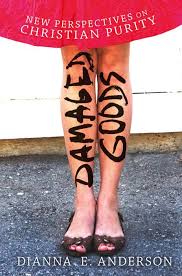 terms of normative Christian sexual ethics, so it certainly needn’t be a black and white binary in being either fundamentalist and misogynist or progressive and sexually healthy, even though any number of recent books by former evangelicals seem to have that caricatured and tone. Anyway, there are great books and fascinating books and candid books and, yes, some weird ones out there. I think Damaged Goods is worth reading carefully, even though most evangelicals will think she’s a bit too casual, now.
terms of normative Christian sexual ethics, so it certainly needn’t be a black and white binary in being either fundamentalist and misogynist or progressive and sexually healthy, even though any number of recent books by former evangelicals seem to have that caricatured and tone. Anyway, there are great books and fascinating books and candid books and, yes, some weird ones out there. I think Damaged Goods is worth reading carefully, even though most evangelicals will think she’s a bit too casual, now.
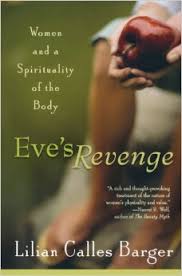 considered heterodox, mostly. Lilian Calles Barger, by the way, has written brilliantly as an evangelical feminist on this topic, and how weird views from church and culture have effected women’s lives, even women’s views of their own bodies. In her Eve’s Revenge: Women and a Spirituality of the Body [Brazos Press; $18.00) she studies this thoroughly, and offers a healthy and classic view, sane and good. Christian faith does value great joy, and good pleasures, even bodily pleasures. You know that C.S. Lewis line: “God must love matter. He made a lot of it.”
considered heterodox, mostly. Lilian Calles Barger, by the way, has written brilliantly as an evangelical feminist on this topic, and how weird views from church and culture have effected women’s lives, even women’s views of their own bodies. In her Eve’s Revenge: Women and a Spirituality of the Body [Brazos Press; $18.00) she studies this thoroughly, and offers a healthy and classic view, sane and good. Christian faith does value great joy, and good pleasures, even bodily pleasures. You know that C.S. Lewis line: “God must love matter. He made a lot of it.”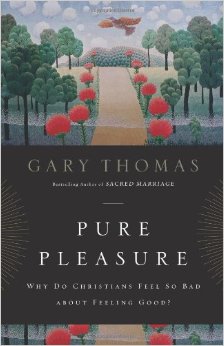 Pure Pleasure: Why Do Christians Feel So Bad about Feeling Good? Gary Thomas (Zondervan) $14.99 We write about Thomas from time to time here — in fact, we awarded him a “Book of the Year” award for a recent book he did on marriage, A Lifelong Love. We love his good books Sacred Marriage and Sacred Parenting and really appreciate his other books, like Glorious Pursuit about virtue, spiritual formation, and being — as one of his titles puts it — Holy Available to God. He “practices the presence of God” as they say, and has this delightful way of bringing deep stuff from the historic saints and older mystics into very upbeat, popular conversation. In the midst of this fairly heavy stuff about spirituality, spiritual disciplines, being transformed by the gospel and such, he found this other theme — some believers seem to have this peculiar guilt about pleasure. He’s a deeply spiritual guy but he’s lighthearted. He’s a joy to be around. Here in Pure Pleasure he offers the power of guilt-free pleasure. As it say on the back,
Pure Pleasure: Why Do Christians Feel So Bad about Feeling Good? Gary Thomas (Zondervan) $14.99 We write about Thomas from time to time here — in fact, we awarded him a “Book of the Year” award for a recent book he did on marriage, A Lifelong Love. We love his good books Sacred Marriage and Sacred Parenting and really appreciate his other books, like Glorious Pursuit about virtue, spiritual formation, and being — as one of his titles puts it — Holy Available to God. He “practices the presence of God” as they say, and has this delightful way of bringing deep stuff from the historic saints and older mystics into very upbeat, popular conversation. In the midst of this fairly heavy stuff about spirituality, spiritual disciplines, being transformed by the gospel and such, he found this other theme — some believers seem to have this peculiar guilt about pleasure. He’s a deeply spiritual guy but he’s lighthearted. He’s a joy to be around. Here in Pure Pleasure he offers the power of guilt-free pleasure. As it say on the back, The Things of Earth: Treasuring God By Enjoying His Gifts Joe Rigney (Crossway) $16.99 Rigney is a professor of theology and Christian worldview at Bethlehem College and Seminary in Minneapolis, so is affiliated with John Piper, who wrote the great forward to this book. One needn’t agree with all of Piper’s passionate views to be glad for his regular reminder that we are to make much of God, but we do that — pleasing God by exalting in Him — by taking joy in God and in God’s provisions for us. That is, at least, his common grace in the real world. Piper takes cues from C.S. Lewis, as does Rigney (whose previous book had the great title How To Live Like a Narnian.) It’s meaty, hefty stuff, and it’s a good counter to some of the goofiness in some religious circles. I like what Gloria Furman wrote after reading it,
The Things of Earth: Treasuring God By Enjoying His Gifts Joe Rigney (Crossway) $16.99 Rigney is a professor of theology and Christian worldview at Bethlehem College and Seminary in Minneapolis, so is affiliated with John Piper, who wrote the great forward to this book. One needn’t agree with all of Piper’s passionate views to be glad for his regular reminder that we are to make much of God, but we do that — pleasing God by exalting in Him — by taking joy in God and in God’s provisions for us. That is, at least, his common grace in the real world. Piper takes cues from C.S. Lewis, as does Rigney (whose previous book had the great title How To Live Like a Narnian.) It’s meaty, hefty stuff, and it’s a good counter to some of the goofiness in some religious circles. I like what Gloria Furman wrote after reading it,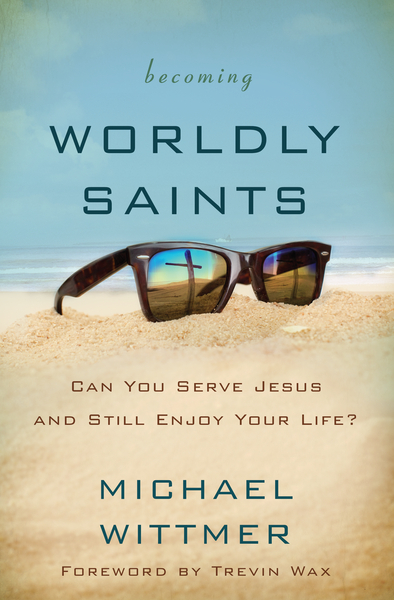 Becoming Worldly Saints: Can You Serve Jesus and Still Enjoy Your Life?
Becoming Worldly Saints: Can You Serve Jesus and Still Enjoy Your Life?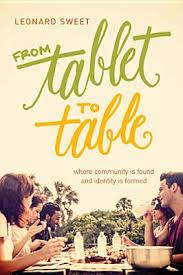 From Tablet to Table: Where Community Is Found and Identity is Formed Leonard Sweet (NavPress) $14.99 Wow, this is a fantastic little book, doing all the things that Sweet at his best always does — lots of word play, clever sentences, bringing together various insights in surprising ways. He is breathy, upbeat, energetic, confident that he’s got something that can change the world. I love authors like this, who believe in what they are saying, and put themselves into it. Sweet is — postmodern semiotic scholar that he is — it seems to me, at heart, still a holiness preacher. (The book is dedicated to his friends Bill and Gloria Gaither!) He reads The New York Review of Books and names all kinds of innovative technologies and futuristic potentials — for a while he branded himself as a futurist and consultant helping us “dance the soul salsa” in the “soul tsunami” of the hot-wired 21st century. The books that are coming out now by any number of young bucks telling churches how to have a better engagement with social media, are merely making practical what Sweet has been saying for decades, now. He’s sophisticated in his reading and, as I always say, the footnotes themselves are an education worth the price of the book.
From Tablet to Table: Where Community Is Found and Identity is Formed Leonard Sweet (NavPress) $14.99 Wow, this is a fantastic little book, doing all the things that Sweet at his best always does — lots of word play, clever sentences, bringing together various insights in surprising ways. He is breathy, upbeat, energetic, confident that he’s got something that can change the world. I love authors like this, who believe in what they are saying, and put themselves into it. Sweet is — postmodern semiotic scholar that he is — it seems to me, at heart, still a holiness preacher. (The book is dedicated to his friends Bill and Gloria Gaither!) He reads The New York Review of Books and names all kinds of innovative technologies and futuristic potentials — for a while he branded himself as a futurist and consultant helping us “dance the soul salsa” in the “soul tsunami” of the hot-wired 21st century. The books that are coming out now by any number of young bucks telling churches how to have a better engagement with social media, are merely making practical what Sweet has been saying for decades, now. He’s sophisticated in his reading and, as I always say, the footnotes themselves are an education worth the price of the book.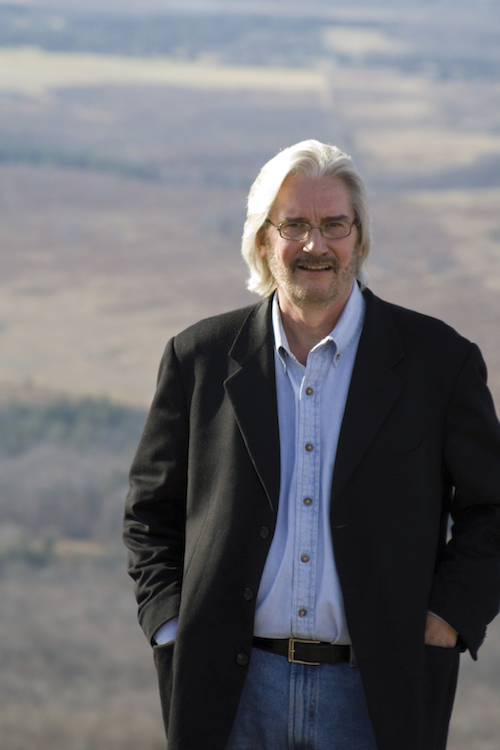
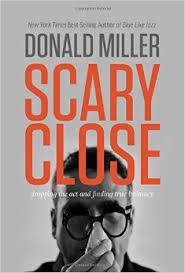 Scary Close: Dropping the Act and Finding True Intimacy Donald Miller (Nelson) $19.99 I mentioned this new hardback in our last post, the one about the Turansky/Miller parenting books. It seemed to fit, since it includes some very good advice about parenting; this memoir is a lovely story about relationships, the arc of which is mostly about the popular Gen X author of Blue Like Jazz learning to be more authentic and develop skills and habits that would allow him to be more intimate and connected. Yes, it is mostly a love story — Miller gets engaged and the book tells of his courtship, the ups and downs along the way (and there were some, believe you me.) I really want to remind you how good this is. It’s a good sign when I can’t stop telling Beth about a book I’ve finished — we obviously read a lot, and much of our skimming and studying we don’t have to share with one another much. Scary Close, though, is one I just have to keep talking about. She has now started it, but I’ve read some out aloud to her already. It’s that kind of a book.
Scary Close: Dropping the Act and Finding True Intimacy Donald Miller (Nelson) $19.99 I mentioned this new hardback in our last post, the one about the Turansky/Miller parenting books. It seemed to fit, since it includes some very good advice about parenting; this memoir is a lovely story about relationships, the arc of which is mostly about the popular Gen X author of Blue Like Jazz learning to be more authentic and develop skills and habits that would allow him to be more intimate and connected. Yes, it is mostly a love story — Miller gets engaged and the book tells of his courtship, the ups and downs along the way (and there were some, believe you me.) I really want to remind you how good this is. It’s a good sign when I can’t stop telling Beth about a book I’ve finished — we obviously read a lot, and much of our skimming and studying we don’t have to share with one another much. Scary Close, though, is one I just have to keep talking about. She has now started it, but I’ve read some out aloud to her already. It’s that kind of a book.  convinced him they could fix up a deteriorated part of a neglected old country club where she had fond and important childhood memories and, of course, it soon began to take shape. Donald’s wry comment that “it’s funny how a good story can start to remodel a place” — was quintessential and a wonderful, potent summary of the work of restoration he and she are committed to. By the way, they offer stunningly beautiful wedding pictures at their
convinced him they could fix up a deteriorated part of a neglected old country club where she had fond and important childhood memories and, of course, it soon began to take shape. Donald’s wry comment that “it’s funny how a good story can start to remodel a place” — was quintessential and a wonderful, potent summary of the work of restoration he and she are committed to. By the way, they offer stunningly beautiful wedding pictures at their 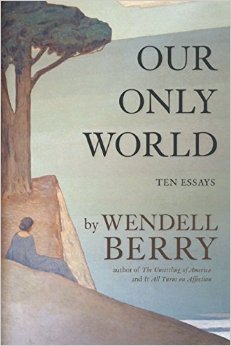 Our Only World: Ten Essays Wendell Berry (Counterpoint) $24.00 I suppose it is a tad incongruous to list the decidedly unhip Mr. Wendell Berry from rural Kentucky right after talking about this psychologically driven story about needing to learn how to fine intimacy and trust by the jazzter brander Donald Miller, formerly of urbane Portlandia. But there you have it, the diverse stuff we have here at the shop, and the diverse books we truly are excited about. It would be a blast to get to send out one of each, eh?
Our Only World: Ten Essays Wendell Berry (Counterpoint) $24.00 I suppose it is a tad incongruous to list the decidedly unhip Mr. Wendell Berry from rural Kentucky right after talking about this psychologically driven story about needing to learn how to fine intimacy and trust by the jazzter brander Donald Miller, formerly of urbane Portlandia. But there you have it, the diverse stuff we have here at the shop, and the diverse books we truly are excited about. It would be a blast to get to send out one of each, eh? 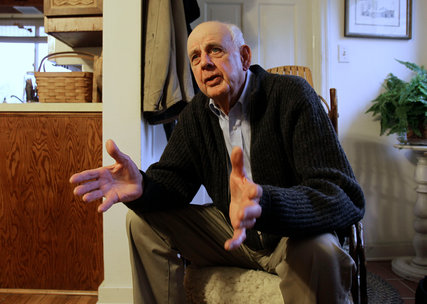

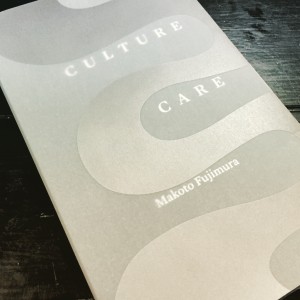 Culture Care: Connecting with Beauty for Our Common Life Makoyo Fujimura (Fujimura Institute) $25.00 Once again, we are very, very proud to be able to suggest an extraordinary book, another example of the rich and wonderful volumes that are available these days. Not mass marketed, but produced in-house by the famous abstract painter’s organization, Culture Care is designed as a paperback with French folded covers, and a thin, but durable onionskin cover, giving it a dusty, translucent look. There is a full color reproduction of apainting, Ki-Seki, (that was first done in 2014 with mineral pigments, Sumi ink, silver, and gold, on Kumohada paper) which further enhances this indie-press release. It is a lovely book, unique and good.
Culture Care: Connecting with Beauty for Our Common Life Makoyo Fujimura (Fujimura Institute) $25.00 Once again, we are very, very proud to be able to suggest an extraordinary book, another example of the rich and wonderful volumes that are available these days. Not mass marketed, but produced in-house by the famous abstract painter’s organization, Culture Care is designed as a paperback with French folded covers, and a thin, but durable onionskin cover, giving it a dusty, translucent look. There is a full color reproduction of apainting, Ki-Seki, (that was first done in 2014 with mineral pigments, Sumi ink, silver, and gold, on Kumohada paper) which further enhances this indie-press release. It is a lovely book, unique and good. 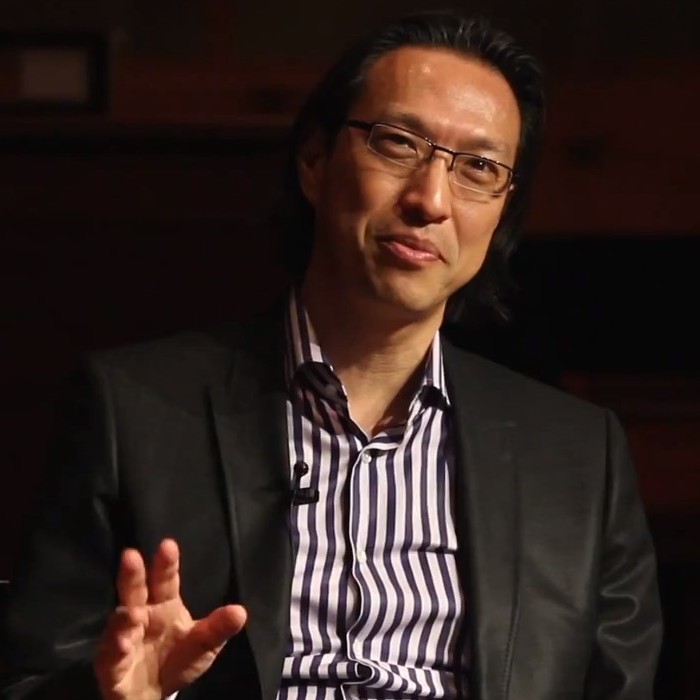
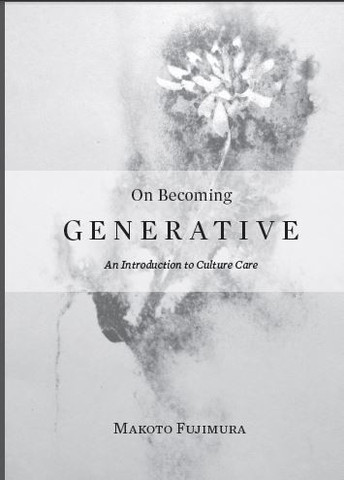
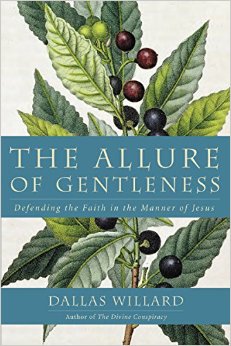 The Allure of Gentleness: Defending the Faith in the Manner of Jesus Dallas Willard (HarperOne) $26.99 This brand new book from the late Dallas Willard, philosopher, theologian, and spiritual guide, arrived today and it seems to be a perfect addition to the above trio of excellent titles. It makes the case, as you can see, that although the Christian faith is reasonable, and we can learn the art of thoughtful apologetics, the heart of winsome witness is — what a phrase! — “the allure of gentleness.” (It reminds me of the phrase which became an early book of Brennan Manning, the “wisdom of accepted tenderness.”)
The Allure of Gentleness: Defending the Faith in the Manner of Jesus Dallas Willard (HarperOne) $26.99 This brand new book from the late Dallas Willard, philosopher, theologian, and spiritual guide, arrived today and it seems to be a perfect addition to the above trio of excellent titles. It makes the case, as you can see, that although the Christian faith is reasonable, and we can learn the art of thoughtful apologetics, the heart of winsome witness is — what a phrase! — “the allure of gentleness.” (It reminds me of the phrase which became an early book of Brennan Manning, the “wisdom of accepted tenderness.”) 
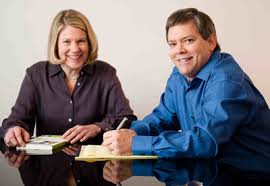 authors, learn a bit about their philosophy of parenting, engage in some Q & A, and explore the subtitle of this new book, “A Christian Parent’s Guide to Raising Kids Who Do What They Need to Do Without Being Told.” We’ll have refreshments and a reception during which you can meet the authors and chat a bit, and, of course, get autographed books.
authors, learn a bit about their philosophy of parenting, engage in some Q & A, and explore the subtitle of this new book, “A Christian Parent’s Guide to Raising Kids Who Do What They Need to Do Without Being Told.” We’ll have refreshments and a reception during which you can meet the authors and chat a bit, and, of course, get autographed books. 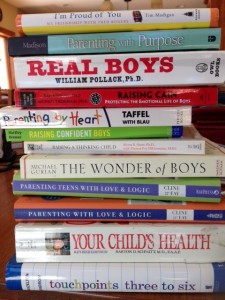 charming and brilliant Sacred Parenting: How Raising Children Shapes Our Souls (Zondervan; $13.99), the gorgeously written The Mystery of Children: What Our Kids Teach Us about Childlike Faith by Mike Mason (Regent College Publishing; $19.95) and Hopes and Fears: Everyday Theology for New Parents and Other Tired, Anxious People by Bromleigh McCleneghan and Lee Hull Moses (Alban Institute; $17.00) which is written by two women who are mainline denominational pastors. We often suggest Parenting Is Your Highest Calling: And 8 Other Myths That Trap Us in Worry and Guilt by the great writer Leslie Leyland Fields (Waterbrook; $14.99.) Although it is a bit more theological, with serious cultural analysis, and mostly about the role of the local church, we adore Marva Dawn’s must-read Is It a Lost Cause?: Having the Heart of God for the Church’s Children (Eerdmans; $18.00.) If you ever need help learning more of what is available, let us know. If you want to bless moms and dads that you know with a book or two, I am confident they would appreciate it. Anyway, books matter, and books about family life matter a lot.
charming and brilliant Sacred Parenting: How Raising Children Shapes Our Souls (Zondervan; $13.99), the gorgeously written The Mystery of Children: What Our Kids Teach Us about Childlike Faith by Mike Mason (Regent College Publishing; $19.95) and Hopes and Fears: Everyday Theology for New Parents and Other Tired, Anxious People by Bromleigh McCleneghan and Lee Hull Moses (Alban Institute; $17.00) which is written by two women who are mainline denominational pastors. We often suggest Parenting Is Your Highest Calling: And 8 Other Myths That Trap Us in Worry and Guilt by the great writer Leslie Leyland Fields (Waterbrook; $14.99.) Although it is a bit more theological, with serious cultural analysis, and mostly about the role of the local church, we adore Marva Dawn’s must-read Is It a Lost Cause?: Having the Heart of God for the Church’s Children (Eerdmans; $18.00.) If you ever need help learning more of what is available, let us know. If you want to bless moms and dads that you know with a book or two, I am confident they would appreciate it. Anyway, books matter, and books about family life matter a lot.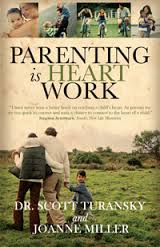
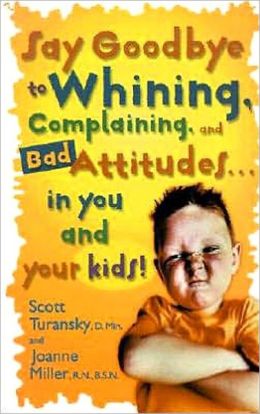 Say Goodbye to Whining, Complaining, and Bad Attitudes… in You and Your Kids Scott Turansky & Joanne Miller (Waterbrook) $14.99 We love this book, and it is such a refreshing approach. Again, this is trying to help us cope with bad attitudes in the lives of our kids, but it does so in part by helping parents learn to honor their children. I know that my own bad attitudes have made thing worse, and the first time I read this I not only learned a bunch, but wished I had had it when my children were younger. It’s a great book that walks a nice balance between deep spiritual stuff and very practical ideas.
Say Goodbye to Whining, Complaining, and Bad Attitudes… in You and Your Kids Scott Turansky & Joanne Miller (Waterbrook) $14.99 We love this book, and it is such a refreshing approach. Again, this is trying to help us cope with bad attitudes in the lives of our kids, but it does so in part by helping parents learn to honor their children. I know that my own bad attitudes have made thing worse, and the first time I read this I not only learned a bunch, but wished I had had it when my children were younger. It’s a great book that walks a nice balance between deep spiritual stuff and very practical ideas.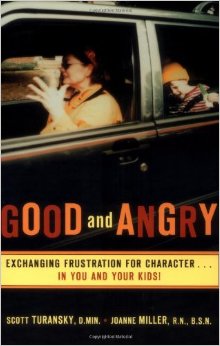
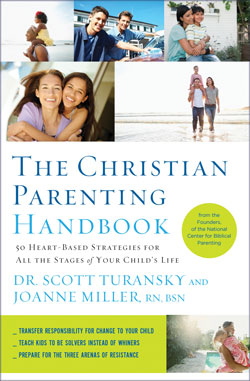 The Christian Parenting Handbook: 50 Heart-Based Strategies for All the Stages of Your Child’s Life Scott Turansky & Joanne Miller (Thomas Nelson Publishers) $16.99 We promoted this book last year and reviewed it at BookNotes. We said that we loved how it offers strategies and ideas for getting “to the heart of the matter.” We find that parents are hungry for good ideas, for guidance and techniques, even as they realize that techniques must be deep and wise, and not mere tricks or gimmicks. A nice thing about this handbook is that it does offer ideas for use with kids of all ages. It really is a thorough resource that can be helpful for many kinds of parents, and many kinds of children.
The Christian Parenting Handbook: 50 Heart-Based Strategies for All the Stages of Your Child’s Life Scott Turansky & Joanne Miller (Thomas Nelson Publishers) $16.99 We promoted this book last year and reviewed it at BookNotes. We said that we loved how it offers strategies and ideas for getting “to the heart of the matter.” We find that parents are hungry for good ideas, for guidance and techniques, even as they realize that techniques must be deep and wise, and not mere tricks or gimmicks. A nice thing about this handbook is that it does offer ideas for use with kids of all ages. It really is a thorough resource that can be helpful for many kinds of parents, and many kinds of children.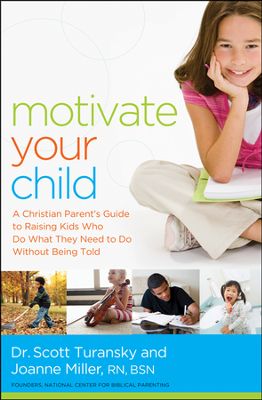 Motivate Your Child: A Christian Parent’s Guide to Raising Kids Who Do What They Need to Do Without Being Told (Nelson) $16.99 As we said above, we are thrilled to carry this new book, which just released a few days ago. it is a solid, warm, helpful book, and is written with a calm and reassuring tone. All of their books are encouraging and clear — you can do this! — and they tell lots of stories from the many families they’ve helped, case studies, so to speak, which give the books are “real world” feel. This one, especially, includes lovely stories (some moving ones drawn especially from Scott’s counseling practice.) This is not a lost cause! Kids really can change “from the inside out.” We parents can learn a more gospel-centered approach, offering Biblical insight, opening doors for spiritual formation, and basic, old-fashioned common sense and maturity — in parents and kids. Although this book title suggests it is about getting kids to do things without being told — and what parent doesn’t need some help with that? — it is, I believe, a book about more than just that. In fact, they make important connections between a child who has internalized a desire to do the right thing (share a toy, be gracious in dealing with a sibling, doing her homework, helping with chores) and that child’s ability to have moral imagination, to be able to take stands on issues. What kind of a kid stands up to bullies? What kind of a kid learns to pray for others? What kind of a kid begins to think about his or her future career in terms of vocation and calling? What does integrity come from? This practical book about seemingly mundane things really does lay important groundwork for bigger, heavier matters, matters that last a lifetime. It has to do with courage and character and virtue and wisdom and such.
Motivate Your Child: A Christian Parent’s Guide to Raising Kids Who Do What They Need to Do Without Being Told (Nelson) $16.99 As we said above, we are thrilled to carry this new book, which just released a few days ago. it is a solid, warm, helpful book, and is written with a calm and reassuring tone. All of their books are encouraging and clear — you can do this! — and they tell lots of stories from the many families they’ve helped, case studies, so to speak, which give the books are “real world” feel. This one, especially, includes lovely stories (some moving ones drawn especially from Scott’s counseling practice.) This is not a lost cause! Kids really can change “from the inside out.” We parents can learn a more gospel-centered approach, offering Biblical insight, opening doors for spiritual formation, and basic, old-fashioned common sense and maturity — in parents and kids. Although this book title suggests it is about getting kids to do things without being told — and what parent doesn’t need some help with that? — it is, I believe, a book about more than just that. In fact, they make important connections between a child who has internalized a desire to do the right thing (share a toy, be gracious in dealing with a sibling, doing her homework, helping with chores) and that child’s ability to have moral imagination, to be able to take stands on issues. What kind of a kid stands up to bullies? What kind of a kid learns to pray for others? What kind of a kid begins to think about his or her future career in terms of vocation and calling? What does integrity come from? This practical book about seemingly mundane things really does lay important groundwork for bigger, heavier matters, matters that last a lifetime. It has to do with courage and character and virtue and wisdom and such. 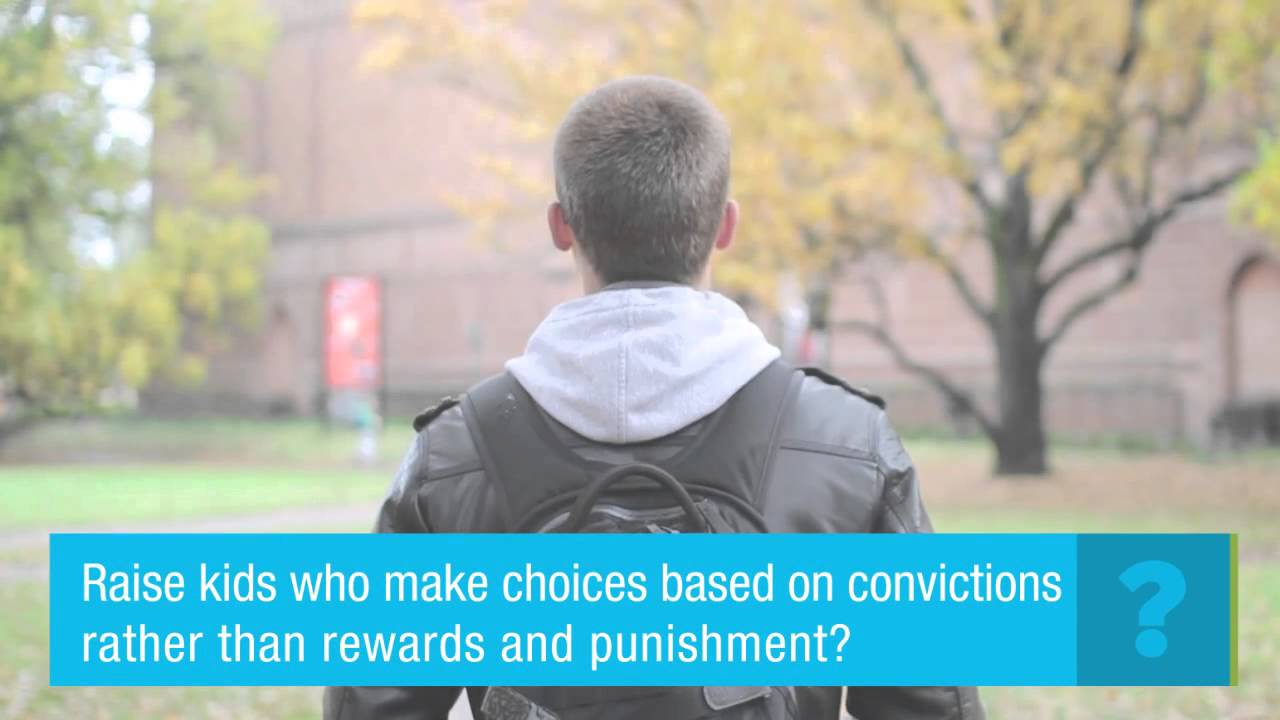

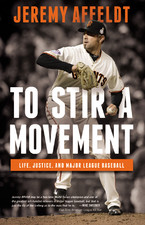 some fine testimonial type autobiographies by athletes, and most of these are fine. We’re Tony Dungy fans, just for instance, and carry all of his stuff. During baseball season, I was happy to promote To Stir a Movement: Life, Justice and Major League Baseball by Jeremy Affeldt (Beacon HIll Press; $21.99) a great example of a professional ball player who is using his fame not only to play with joy and integrity, but to work against contemporary slavery, sexual trafficking and such. And you know that one of our favorite customers, Ethan Bryant, has written a book I love, a memoir of a summer going to Royals games
some fine testimonial type autobiographies by athletes, and most of these are fine. We’re Tony Dungy fans, just for instance, and carry all of his stuff. During baseball season, I was happy to promote To Stir a Movement: Life, Justice and Major League Baseball by Jeremy Affeldt (Beacon HIll Press; $21.99) a great example of a professional ball player who is using his fame not only to play with joy and integrity, but to work against contemporary slavery, sexual trafficking and such. And you know that one of our favorite customers, Ethan Bryant, has written a book I love, a memoir of a summer going to Royals games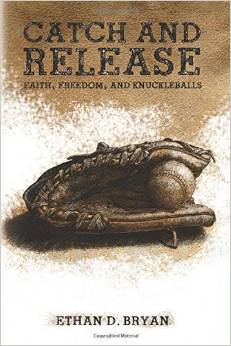 called Run Home and Take a Bow: Stories of Life, Faith, and a Season with the Kansas City Royals (Samizdat Creative; $12.99) and the very interesting Catch and Release: Faith Freedom and Knuckleballs (Electio Publishing; $15.99) about him playing catch to raise money to stop slavery. What a fun idea, a book around the world of sports, but not about watching, or even playing the real sport, but about this lovely game of having a catch. We’ve reviewed these in the past and suggest them again.
called Run Home and Take a Bow: Stories of Life, Faith, and a Season with the Kansas City Royals (Samizdat Creative; $12.99) and the very interesting Catch and Release: Faith Freedom and Knuckleballs (Electio Publishing; $15.99) about him playing catch to raise money to stop slavery. What a fun idea, a book around the world of sports, but not about watching, or even playing the real sport, but about this lovely game of having a catch. We’ve reviewed these in the past and suggest them again.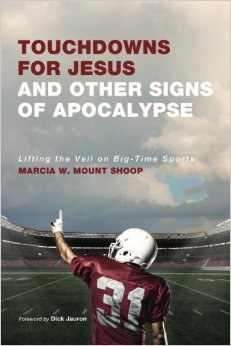 Touchdowns for Jesus and Other Signs of the Apocalypse: Lifting the Veil on Big-Time Sports Marcia W. Mount Shoop (Cascade) $16.00 This is one of the best books on faith and sports I’ve read, thoughtful, critical, engaging, and — critical as it is — written by a very knowledgeable, passionate woman who has great love of sports. She is a Presbyterian pastor with a PhD from Emory and her husband is a beloved college coach (John Shoop.) Her “calling audibles” blog invited others into the conversations she and her husband were having, often about key, critical concerns, asking big questions, including concerns about the sexism that pervades the industrial sports complex. Another respected coach wrote a glowing introduction, inviting us to come to grips with the issues revealed in this book. As Bomani Jones, an ESPN Commentator says, “Shoop has been close enough to this insane world to know how it works, but removed enough to clearly and honestly discuss what’s right and wrong about the games we watch and the machines that drive them.” She’s got some good stories, too — shouting at hecklers at Soldier Field, getting kicked out of a wives of players Bible study — which further makes this a fascinating, feisty, valuable book. Wow.
Touchdowns for Jesus and Other Signs of the Apocalypse: Lifting the Veil on Big-Time Sports Marcia W. Mount Shoop (Cascade) $16.00 This is one of the best books on faith and sports I’ve read, thoughtful, critical, engaging, and — critical as it is — written by a very knowledgeable, passionate woman who has great love of sports. She is a Presbyterian pastor with a PhD from Emory and her husband is a beloved college coach (John Shoop.) Her “calling audibles” blog invited others into the conversations she and her husband were having, often about key, critical concerns, asking big questions, including concerns about the sexism that pervades the industrial sports complex. Another respected coach wrote a glowing introduction, inviting us to come to grips with the issues revealed in this book. As Bomani Jones, an ESPN Commentator says, “Shoop has been close enough to this insane world to know how it works, but removed enough to clearly and honestly discuss what’s right and wrong about the games we watch and the machines that drive them.” She’s got some good stories, too — shouting at hecklers at Soldier Field, getting kicked out of a wives of players Bible study — which further makes this a fascinating, feisty, valuable book. Wow.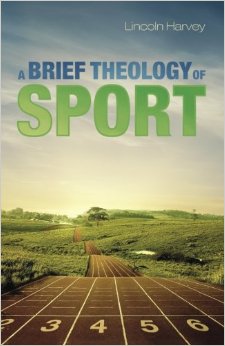 A Brief Theology of Sport Lincoln Harvey (Cascade) $17.00 This, too, is an excellent new work, advancing the discourse about how Christian theology relates to sports, and how we can think faithfully about how we consider games and athletics. Harvey is from England, so is a besotted soccer fan (a fan of Arsenal, no less!) This is serious theological stuff (one chapter is called “A Liturgical Celebration of Contingency”) and is yet a very interesting read. Harvey obviously loves the games he watches, and he asks us to ask ourselves tough questions about what we love, and why. As Luke Bretherton of Duke Divinity School writes, “Wonderfully insightful, historically rich, and theologically punchy, this is vital reading for anyone who plays, watches, or is utterly bemused by the world of sports.” A bit heavy at times, and is, truly, a theology of sport.
A Brief Theology of Sport Lincoln Harvey (Cascade) $17.00 This, too, is an excellent new work, advancing the discourse about how Christian theology relates to sports, and how we can think faithfully about how we consider games and athletics. Harvey is from England, so is a besotted soccer fan (a fan of Arsenal, no less!) This is serious theological stuff (one chapter is called “A Liturgical Celebration of Contingency”) and is yet a very interesting read. Harvey obviously loves the games he watches, and he asks us to ask ourselves tough questions about what we love, and why. As Luke Bretherton of Duke Divinity School writes, “Wonderfully insightful, historically rich, and theologically punchy, this is vital reading for anyone who plays, watches, or is utterly bemused by the world of sports.” A bit heavy at times, and is, truly, a theology of sport.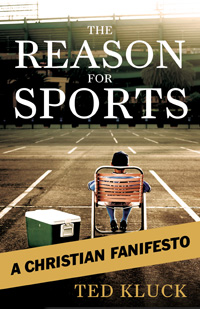 The Reason for Sports: A Christian Fanifesto Ted Luck (Moody) $13.99 Moody Publishers, as I’m sure you know, have a great history of being rather fundamentalist, focused on the first things of the gospel, an evangelical urgency about exalting Christ, and (because Moody was so committed to the urban poor) doing work in the inner city, with the occasional book about racial reconciliation. They are a mainstream, solid, evangelical press, with clearly Christian doctrine and practical stuff on Christian living. And here — really! — is a funny, upbeat, curiously-wide-ranging, oddball book, a manifesto for sports fans. It’s fantastic. Can sports bring some sort of inspired vision? Can we appreciate goodness, common grace for the common good, so to speak? Does God in God’s world smile about our simple joys as we watch and cheer? Kluck says yes, and although he is a conventional, youngish, evangelical Christian, he is passionate about this business of being a high octane sports fan, and has written a book that anybody, religious or not, could appreciate. As Mark Galli nicely puts it, The Reason for Sports “helps think about sports Christianly without Christian cliches and worn out sports piety. He’s an athlete and a fan whose writing implicitly reminds us why God created sports: for the joy of play.” I agree with the ESPN host who said “”This is not your normal sports book. Nor is it your normal Christian book.” Short, sweet, helpful. If you know anybody who is a gonzo fan, you should get them this book!
The Reason for Sports: A Christian Fanifesto Ted Luck (Moody) $13.99 Moody Publishers, as I’m sure you know, have a great history of being rather fundamentalist, focused on the first things of the gospel, an evangelical urgency about exalting Christ, and (because Moody was so committed to the urban poor) doing work in the inner city, with the occasional book about racial reconciliation. They are a mainstream, solid, evangelical press, with clearly Christian doctrine and practical stuff on Christian living. And here — really! — is a funny, upbeat, curiously-wide-ranging, oddball book, a manifesto for sports fans. It’s fantastic. Can sports bring some sort of inspired vision? Can we appreciate goodness, common grace for the common good, so to speak? Does God in God’s world smile about our simple joys as we watch and cheer? Kluck says yes, and although he is a conventional, youngish, evangelical Christian, he is passionate about this business of being a high octane sports fan, and has written a book that anybody, religious or not, could appreciate. As Mark Galli nicely puts it, The Reason for Sports “helps think about sports Christianly without Christian cliches and worn out sports piety. He’s an athlete and a fan whose writing implicitly reminds us why God created sports: for the joy of play.” I agree with the ESPN host who said “”This is not your normal sports book. Nor is it your normal Christian book.” Short, sweet, helpful. If you know anybody who is a gonzo fan, you should get them this book!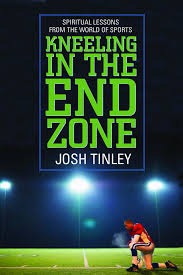 Kneeling in the End Zone: Spiritual Lessons from the World of Sports Josh Tinley (Pilgrim Press) $15.00 We have promoted this before, and think it is one of the more mature guides to the inspiration we can get from watching or playing athletics. Dr. Greg Linville, who teaches Sports Outreach at Malone University writes that “As a vocational sports theologian, I strongly relate to Tinley’s desire to communicate God’s game plan for life as he connects the theological dots… as observed through sport. Many of Tinley’s sporting metaphors and athletic stories would bring a smile to the face of the Apostle Paul who was the first follower of Christ to realize the effectiveness of sporting metaphors to teach and illustrate spiritual principles.” But yet, don’t think this as only an inspirational, devotional volume for jocks, and not only for football players — Kneeling in the End Zone looks at the profound and the ugly, the beautiful and the absurd, and attempts to use sports as a bit of a lens to clarify theology and faith. It is, as I’ve said, one of the better books of this kind. There are transcendent moments in sports, and Tinley helps us see that.
Kneeling in the End Zone: Spiritual Lessons from the World of Sports Josh Tinley (Pilgrim Press) $15.00 We have promoted this before, and think it is one of the more mature guides to the inspiration we can get from watching or playing athletics. Dr. Greg Linville, who teaches Sports Outreach at Malone University writes that “As a vocational sports theologian, I strongly relate to Tinley’s desire to communicate God’s game plan for life as he connects the theological dots… as observed through sport. Many of Tinley’s sporting metaphors and athletic stories would bring a smile to the face of the Apostle Paul who was the first follower of Christ to realize the effectiveness of sporting metaphors to teach and illustrate spiritual principles.” But yet, don’t think this as only an inspirational, devotional volume for jocks, and not only for football players — Kneeling in the End Zone looks at the profound and the ugly, the beautiful and the absurd, and attempts to use sports as a bit of a lens to clarify theology and faith. It is, as I’ve said, one of the better books of this kind. There are transcendent moments in sports, and Tinley helps us see that.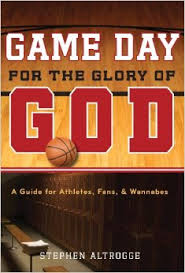 Game Day for the Glory of God: A Guide for Athletes, Fans, & Wannabes Stephen Altrogge (Crossway) $10.99 I often tell sports fans, parents, coaches, and players that this really is the best introductory book of which we are aware about what we should know about a Christian view of sports. It is short and passionately gospel-centered, inviting us to resist idols and put God first in everything, even our game day. Good for fans, of course, for high school or college atheletes, and certainly for parents wanting to help their kids get a solid, Godly perspective. Altrogge lives and pastors in Western Pennsylvania, by the way, so is, quite naturally, a fan of the Pittsburgh Steelers. A great, inspiring little book.
Game Day for the Glory of God: A Guide for Athletes, Fans, & Wannabes Stephen Altrogge (Crossway) $10.99 I often tell sports fans, parents, coaches, and players that this really is the best introductory book of which we are aware about what we should know about a Christian view of sports. It is short and passionately gospel-centered, inviting us to resist idols and put God first in everything, even our game day. Good for fans, of course, for high school or college atheletes, and certainly for parents wanting to help their kids get a solid, Godly perspective. Altrogge lives and pastors in Western Pennsylvania, by the way, so is, quite naturally, a fan of the Pittsburgh Steelers. A great, inspiring little book.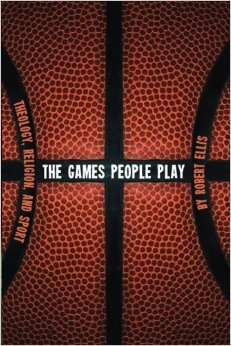 The Games People Play: Theology, Religion, and Sport Robert Ellis (Wipf & Stock) $37.00 I know this is thick and a bit pricey. But it looks very mature, and very good. The author of what might be the best serious book on sports — Good Game: Christianity and the Culture of Sports on Baylor University Press ($29.95) — Shirl James Hoffman (who also writes about kinesiology) raves. Shirl Hoffman writes, “Ellis masterfully weaves a thread through the church’s inconstant history with sport, dissects sport as a modern cultural phenomenon, and armed with a prodigious arsenal of evidence, dares to ask whether the transcendent moments of sport might actually be experiences of God. A must-read for anyone hoping to understand how sport fits within the Christian tradition.”
The Games People Play: Theology, Religion, and Sport Robert Ellis (Wipf & Stock) $37.00 I know this is thick and a bit pricey. But it looks very mature, and very good. The author of what might be the best serious book on sports — Good Game: Christianity and the Culture of Sports on Baylor University Press ($29.95) — Shirl James Hoffman (who also writes about kinesiology) raves. Shirl Hoffman writes, “Ellis masterfully weaves a thread through the church’s inconstant history with sport, dissects sport as a modern cultural phenomenon, and armed with a prodigious arsenal of evidence, dares to ask whether the transcendent moments of sport might actually be experiences of God. A must-read for anyone hoping to understand how sport fits within the Christian tradition.” Welcome to the Terrordom: The Pain, Politics and Promise of Sports Dave Zirin (foreword by Chuck D) (Haymarket Books) $16.00 You maybe know that 80’s era rappers Public Enemy blazed into the world of hip hop, known for the 1989 “Welcome to the Terrordom” anthem, a call to arms against a world gone mad. It is from that song title that this book gets it’s title, and it is no accident that the passionate social critic Chuck D of Public Enemy even wrote the foreword. Zirin, a left wing journalist who truly loves sports, and is a good sports journalist, exposes the scandals and dangers “looking past the shiny surface to what’s really happening in the locker room, the boardroom, the arena, and the stands.” He’s angry at things we should be angry about, and is optimistic about some other things. It is a bit dated, but if you are interested in the politics of sports, so to speak, the critique within Welcome to the Terrordom is powerful.
Welcome to the Terrordom: The Pain, Politics and Promise of Sports Dave Zirin (foreword by Chuck D) (Haymarket Books) $16.00 You maybe know that 80’s era rappers Public Enemy blazed into the world of hip hop, known for the 1989 “Welcome to the Terrordom” anthem, a call to arms against a world gone mad. It is from that song title that this book gets it’s title, and it is no accident that the passionate social critic Chuck D of Public Enemy even wrote the foreword. Zirin, a left wing journalist who truly loves sports, and is a good sports journalist, exposes the scandals and dangers “looking past the shiny surface to what’s really happening in the locker room, the boardroom, the arena, and the stands.” He’s angry at things we should be angry about, and is optimistic about some other things. It is a bit dated, but if you are interested in the politics of sports, so to speak, the critique within Welcome to the Terrordom is powerful. From Season to Season: Sports as American Religion edited by Joseph L. Price (Mercer University Press) $25.00 Mercer University Press has a whole line of books about sports and religion in American culture. Wow. Dr. Price who edited this (and he has several good chapters himself) is a Langdon Gilkey scholar, so has tools to develop a mature and thoughtful theology of cultural engagement. And he’s a sports fan (and a college President, too) Here, he brings together a handful of scholars, each offering a particular paper on various aspects of the sporting experience in North American culture. From professional wrestling to hockey in Canada to basketball and various specific themes — “The Pitchers Mound as Cosmic Mountain” and “The Final Four as Final Judgement” and “The Super Bowl as Religious Festival” — this is all truly fascinating. The title itself comes from an essay on “The Rhythmic and Religious Significance of American Sports Seasons.” What a collection to help us discern the times…
From Season to Season: Sports as American Religion edited by Joseph L. Price (Mercer University Press) $25.00 Mercer University Press has a whole line of books about sports and religion in American culture. Wow. Dr. Price who edited this (and he has several good chapters himself) is a Langdon Gilkey scholar, so has tools to develop a mature and thoughtful theology of cultural engagement. And he’s a sports fan (and a college President, too) Here, he brings together a handful of scholars, each offering a particular paper on various aspects of the sporting experience in North American culture. From professional wrestling to hockey in Canada to basketball and various specific themes — “The Pitchers Mound as Cosmic Mountain” and “The Final Four as Final Judgement” and “The Super Bowl as Religious Festival” — this is all truly fascinating. The title itself comes from an essay on “The Rhythmic and Religious Significance of American Sports Seasons.” What a collection to help us discern the times…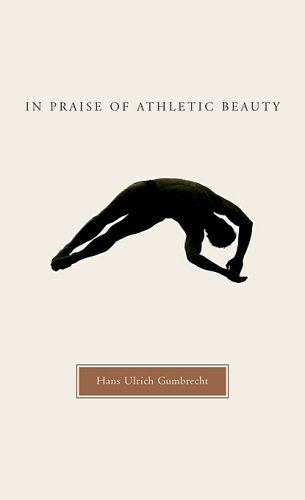 In Praise of Athletic Beauty Hans Ulrich Gumbrecht (Belknap/Harvard University Press) $22.95 I’ve mentioned this before, and think it is a fine contribution to the library of the serious thinker about sports. It is, I suppose, mostly a book about aesthetics, and it is eloquent and literary. It is asked why we have such fervor, when in awe of athletic prowess, and it answers this fundamental question by drawing deeply on the history of philosophy, trying to explore what is evoked and what moves us by seeing good performances. In Praise of Athletic Beauty invites us to embrace our enjoyment, offering a philosophically sophisticated explanation of the beauty of it all.
In Praise of Athletic Beauty Hans Ulrich Gumbrecht (Belknap/Harvard University Press) $22.95 I’ve mentioned this before, and think it is a fine contribution to the library of the serious thinker about sports. It is, I suppose, mostly a book about aesthetics, and it is eloquent and literary. It is asked why we have such fervor, when in awe of athletic prowess, and it answers this fundamental question by drawing deeply on the history of philosophy, trying to explore what is evoked and what moves us by seeing good performances. In Praise of Athletic Beauty invites us to embrace our enjoyment, offering a philosophically sophisticated explanation of the beauty of it all.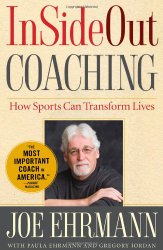 Inside Out Coaching: How Sports Can Transform Lives Joe Ehrmann (Simon & Schuster) $25.00 We have raved before about the fantastic sports biography, the tale of former Baltimore Colt Joe Ehrmann, as told by Sports Illustrated writer (and Pulitzer Prize winner) Jeffrey Marks, called Season of Life. It’s truly a great book. Now, here, Joe Ehrmann tells his own story, and about his work as a coach (as we learn in Season of Life, he leaves pro ball, goes to seminary, and starts coaching an urban youth league, teaching boys to be “men for each other.”) I have some sharp, thoughtful friends who work in campus ministry with athletes and coaches and they all use this routinely. It is one of the best examples of a profoundly Christian orientation, a clear sense of calling and vocation, but yet written for a mainstream audience; Ehrmann is clearly a man of deep and serious faith, but he does not wear it on his sleeve or resort to the aforementioned “pious sports platitudes.” This is a gem of a book, and every career should be so fortunate to have a leader this articulate who has thought hard about the good stuff they can do in their particular field. Coach or not, this is a great book for anyone interested in sports, and certainly anyone interested in sports ministry. Hooray!
Inside Out Coaching: How Sports Can Transform Lives Joe Ehrmann (Simon & Schuster) $25.00 We have raved before about the fantastic sports biography, the tale of former Baltimore Colt Joe Ehrmann, as told by Sports Illustrated writer (and Pulitzer Prize winner) Jeffrey Marks, called Season of Life. It’s truly a great book. Now, here, Joe Ehrmann tells his own story, and about his work as a coach (as we learn in Season of Life, he leaves pro ball, goes to seminary, and starts coaching an urban youth league, teaching boys to be “men for each other.”) I have some sharp, thoughtful friends who work in campus ministry with athletes and coaches and they all use this routinely. It is one of the best examples of a profoundly Christian orientation, a clear sense of calling and vocation, but yet written for a mainstream audience; Ehrmann is clearly a man of deep and serious faith, but he does not wear it on his sleeve or resort to the aforementioned “pious sports platitudes.” This is a gem of a book, and every career should be so fortunate to have a leader this articulate who has thought hard about the good stuff they can do in their particular field. Coach or not, this is a great book for anyone interested in sports, and certainly anyone interested in sports ministry. Hooray!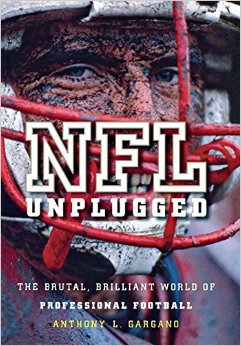 The NFL Unplugged: The Brutal, Brilliant World of Professional Football Anthony Gargano (Wiley) $25.95 This has been widely reviewed, enjoyed by serious football fans, and the author is esteemed for being a fine writer and powerful reporter — and a pretty passionate, opinionated, regular sports guy. This really does have the inside scoop — raw, unplugged, brutal. From what really happens in huddles and pile-ups to how coaches speeches work (to help or deflate players) to what “the dark place” is, this is extraordinary. How far will some players and coaches go to win? What is training camp really like? What goes on behind the NFL curtain, in the lives of the players. Gargano is a South Philly radio guy, and this is is “a front row seat to the agony and the ecstasy.” If you love football, you won’t be able to put this book down.
The NFL Unplugged: The Brutal, Brilliant World of Professional Football Anthony Gargano (Wiley) $25.95 This has been widely reviewed, enjoyed by serious football fans, and the author is esteemed for being a fine writer and powerful reporter — and a pretty passionate, opinionated, regular sports guy. This really does have the inside scoop — raw, unplugged, brutal. From what really happens in huddles and pile-ups to how coaches speeches work (to help or deflate players) to what “the dark place” is, this is extraordinary. How far will some players and coaches go to win? What is training camp really like? What goes on behind the NFL curtain, in the lives of the players. Gargano is a South Philly radio guy, and this is is “a front row seat to the agony and the ecstasy.” If you love football, you won’t be able to put this book down.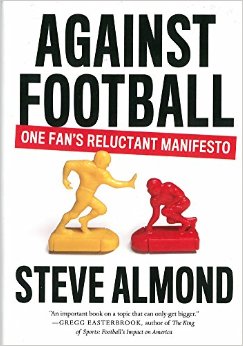 Against Football: One Fan’s Reluctant Manifesto Steve Almond (Melville House) $22.95 This was one of the most amazing books I’ve read all year — I was going to award it one of the Best of 2014, but wasn’t sure what category in which to name it. I really intended to, but just, oddly, never listed it. It really is one of those books I will never forget.
Against Football: One Fan’s Reluctant Manifesto Steve Almond (Melville House) $22.95 This was one of the most amazing books I’ve read all year — I was going to award it one of the Best of 2014, but wasn’t sure what category in which to name it. I really intended to, but just, oddly, never listed it. It really is one of those books I will never forget.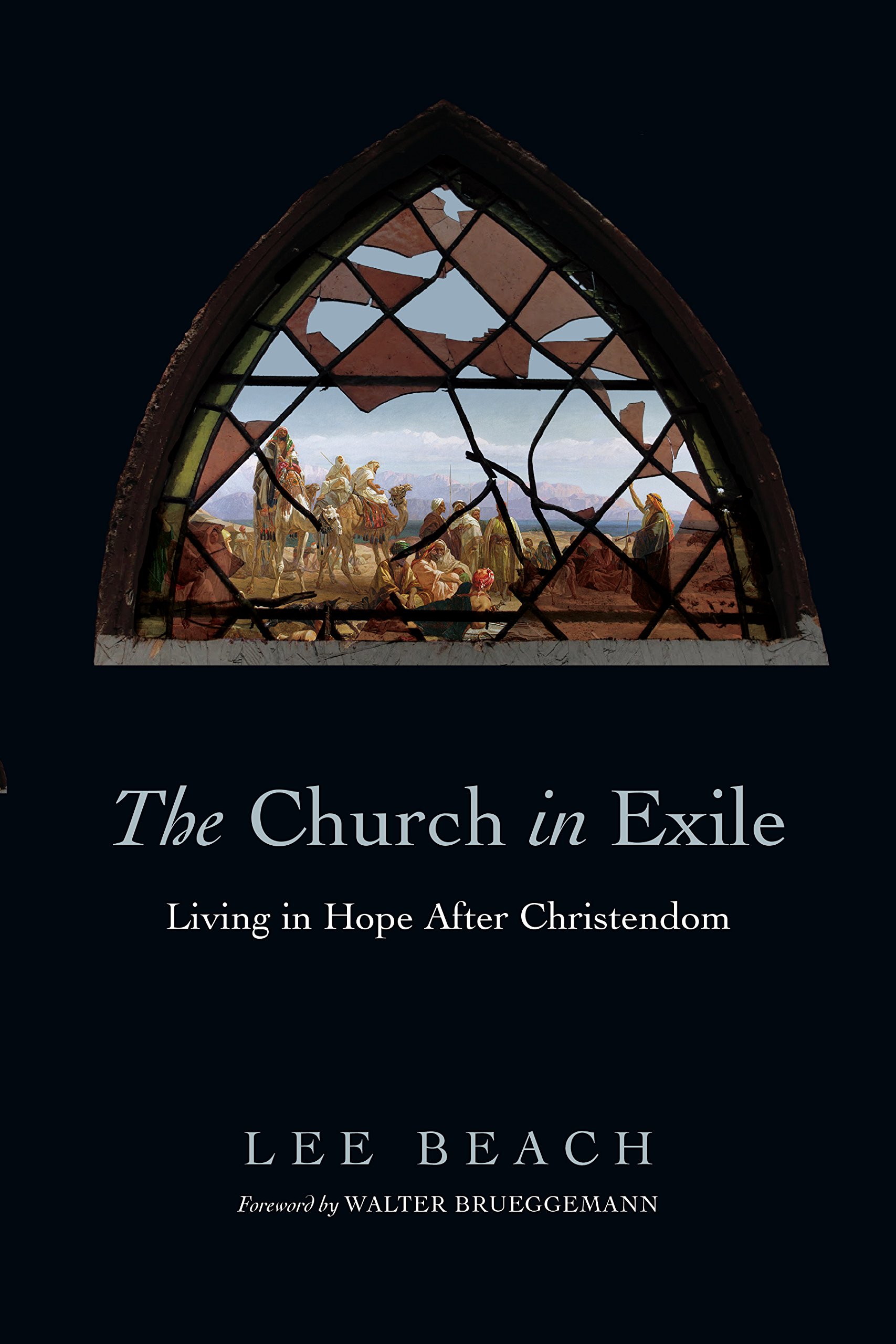 The Church in Exile: Living in Hope After Christendom Lee Beach (IVP Academic) $25.00 Many will value Beach’s radical call to serious discipleship and his broad and astute observations about post-Christian Western culture. He is currently a professor and the director of ministry formation at McMaster
The Church in Exile: Living in Hope After Christendom Lee Beach (IVP Academic) $25.00 Many will value Beach’s radical call to serious discipleship and his broad and astute observations about post-Christian Western culture. He is currently a professor and the director of ministry formation at McMaster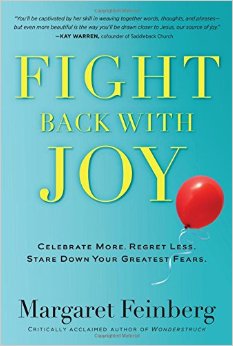 Fight Back with Joy: Celebrate More, Regret Less, Stare Down Your Greatest Fears Margaret Feinberg (Worthy) $15.99 I had an early manuscript of this — thanks Margaret! — and pretty much fell in love with it. I liked her previous Wonderstruck quite a lot, and this, too, shares her moving prose, her upbeat attitude, her deeply Christ-centered lifestyle, and her joyful, honest style. But this time — hold on! — this time, she brings the raw honest style, and the joy, in extra doses. We find out early on in the book that she was given a very serious diagnosis with bad, bad cancer. (Is there any other kind?) She was setting out to write a book about joy. (What was she thinking? What was God thinking?) Alas, this tells the tale of her coping with some very hard stuff with some very realistic, hard-won joy. Kay Warren, who also had cancer, and has also lost a son to early death, knows tragedy and sorrow and the struggle for resilience. She writes, “You’ll be captivated by her skill weaving together words, thoughts, and phrases — but even more beautiful is the way you’ll be drawn closer to Jesus, our source of joy.” There’s a neat letter from her husband, Leif, in the back, too. Three cheers for this remarkable couple, and how they turned this hard year into an chance to do a different sort of ministry, to care for others, and be cared for. Three cheers for this book!
Fight Back with Joy: Celebrate More, Regret Less, Stare Down Your Greatest Fears Margaret Feinberg (Worthy) $15.99 I had an early manuscript of this — thanks Margaret! — and pretty much fell in love with it. I liked her previous Wonderstruck quite a lot, and this, too, shares her moving prose, her upbeat attitude, her deeply Christ-centered lifestyle, and her joyful, honest style. But this time — hold on! — this time, she brings the raw honest style, and the joy, in extra doses. We find out early on in the book that she was given a very serious diagnosis with bad, bad cancer. (Is there any other kind?) She was setting out to write a book about joy. (What was she thinking? What was God thinking?) Alas, this tells the tale of her coping with some very hard stuff with some very realistic, hard-won joy. Kay Warren, who also had cancer, and has also lost a son to early death, knows tragedy and sorrow and the struggle for resilience. She writes, “You’ll be captivated by her skill weaving together words, thoughts, and phrases — but even more beautiful is the way you’ll be drawn closer to Jesus, our source of joy.” There’s a neat letter from her husband, Leif, in the back, too. Three cheers for this remarkable couple, and how they turned this hard year into an chance to do a different sort of ministry, to care for others, and be cared for. Three cheers for this book!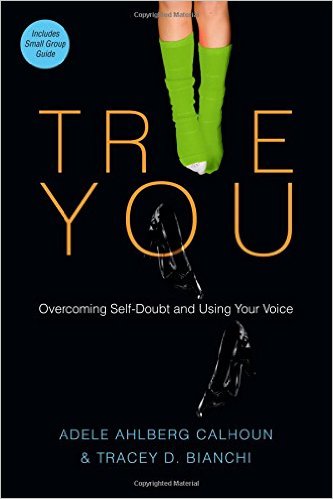 True You: Overcoming Self-Doubt and Using Your Voice Adele Ahlberg Calhoun & Tracey D. Bianchi (IVP/Crescendo) $16.00 Adele Ahlberg Calhoun is an experienced leader in ministry and has written significant work on spiritual formation. Her big and exceptionally useful Spiritual Disciplines Handbook is a go-to, oft recommended resource; her Invitations from God is spectacular, moving, insightful, profound. She and her husband are good friends with the Keller’s of Redeemer, if that helps assure you of her thoughtful depth. Tracey Bianchi is also a writer I respect — she is quite an active young woman, who has written two books we loved — Mom Connections is about how young mothers need supportive friendship, and offers very good ideas for those in that season of life, and Green Mama which is an upbeat and fun look at the call to be environmentally conscious, and how to be more green around the home, as a faithful act of Christian discipleship. Great stuff! I love Calhoun’s mature, sober style and I like Tracey’s passionate, colorful approach. Together, I am sure they are going to be justly famous: what a team! What a book! You know that women have many expectations thrust upon them — “act like a lady” “land a career” “find a man” (“be sure to stay thin.”) With what Amy Simpson calls “empathy and sisterly candor” these authors explore how to be true to yourself. What does it mean to “find your voice?” (And what does it mean to use it well?) I have to say, I don’t get the cover design, but it is cute, and the call to be true, truly you, is evident. There is a small group study guide included, and I am sure this is going to be a great book for women of all ages, to read alone or, better, together.
True You: Overcoming Self-Doubt and Using Your Voice Adele Ahlberg Calhoun & Tracey D. Bianchi (IVP/Crescendo) $16.00 Adele Ahlberg Calhoun is an experienced leader in ministry and has written significant work on spiritual formation. Her big and exceptionally useful Spiritual Disciplines Handbook is a go-to, oft recommended resource; her Invitations from God is spectacular, moving, insightful, profound. She and her husband are good friends with the Keller’s of Redeemer, if that helps assure you of her thoughtful depth. Tracey Bianchi is also a writer I respect — she is quite an active young woman, who has written two books we loved — Mom Connections is about how young mothers need supportive friendship, and offers very good ideas for those in that season of life, and Green Mama which is an upbeat and fun look at the call to be environmentally conscious, and how to be more green around the home, as a faithful act of Christian discipleship. Great stuff! I love Calhoun’s mature, sober style and I like Tracey’s passionate, colorful approach. Together, I am sure they are going to be justly famous: what a team! What a book! You know that women have many expectations thrust upon them — “act like a lady” “land a career” “find a man” (“be sure to stay thin.”) With what Amy Simpson calls “empathy and sisterly candor” these authors explore how to be true to yourself. What does it mean to “find your voice?” (And what does it mean to use it well?) I have to say, I don’t get the cover design, but it is cute, and the call to be true, truly you, is evident. There is a small group study guide included, and I am sure this is going to be a great book for women of all ages, to read alone or, better, together. 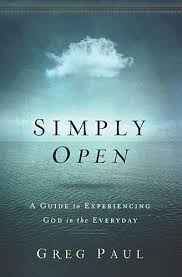 Simply Open: A Guide to Experiencing God in the Everyday Greg Paul (Nelson) $16.99 I have read other books by Greg Paul about his work in urban ministry, and they are beautifully written, raw and real, and both inspiring and challenging. He hits hard, speaks with truth and grace, and is a creative, interesting person. Here, he offers us “the simplest, most transformative prayer you may ever pray.” This is a simple matter of practicing a prayer of awareness, which — as it says on the back cover — “can turn each ordinary workday into a deepening spiritual journey.” For anyone interested in the contemplative path or who wants a deeper experience of God’s presence Simply Open invites us to use our five senses to encounter God and God’s world. Moment by moment, God can open you up — eyes, ears, nostrils, hands, mouth, heart, and mind. I am sure this is exquisite to read, exciting to learn about, and will help you, if pursued. I can’t wait to read this book.
Simply Open: A Guide to Experiencing God in the Everyday Greg Paul (Nelson) $16.99 I have read other books by Greg Paul about his work in urban ministry, and they are beautifully written, raw and real, and both inspiring and challenging. He hits hard, speaks with truth and grace, and is a creative, interesting person. Here, he offers us “the simplest, most transformative prayer you may ever pray.” This is a simple matter of practicing a prayer of awareness, which — as it says on the back cover — “can turn each ordinary workday into a deepening spiritual journey.” For anyone interested in the contemplative path or who wants a deeper experience of God’s presence Simply Open invites us to use our five senses to encounter God and God’s world. Moment by moment, God can open you up — eyes, ears, nostrils, hands, mouth, heart, and mind. I am sure this is exquisite to read, exciting to learn about, and will help you, if pursued. I can’t wait to read this book. 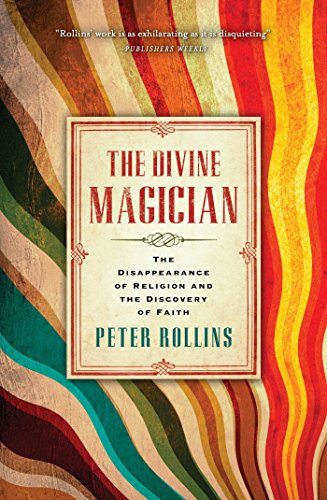 The Divine Magician: The Disappearance of Religion and the Discovery of Faith Peter Rollins (Howard) $14.99 I’ll admit that I’ve not fully embraced the popularity of this creative, energetic, storytelling, postmodern, Irish theologian. His live blend of music, visual art with soundcapes, theater, ritual and reflection sound sensationally moving, but the books are a bit more standard-fair blend of progressive theology, cultural studies, and a subversion of sacred cows. Here, he interrogates traditional religious notions, undermining the commonplace debates involving dogma, doctrine, and tradition. The back cover calls it an “incendiary reading of Christianity” which “breaks the boundaries of religion.” I don’t know what that means, really, or why it is a good thing, but I’m going to find out. Why don’t you join me — let’s figure this out. The back cover says he is a “firebrand” and that he rejects both the “spiritual” and “religious” label. I think I get that. As with his other books, it will create a lot of discussion, and we’re happy to stock it.
The Divine Magician: The Disappearance of Religion and the Discovery of Faith Peter Rollins (Howard) $14.99 I’ll admit that I’ve not fully embraced the popularity of this creative, energetic, storytelling, postmodern, Irish theologian. His live blend of music, visual art with soundcapes, theater, ritual and reflection sound sensationally moving, but the books are a bit more standard-fair blend of progressive theology, cultural studies, and a subversion of sacred cows. Here, he interrogates traditional religious notions, undermining the commonplace debates involving dogma, doctrine, and tradition. The back cover calls it an “incendiary reading of Christianity” which “breaks the boundaries of religion.” I don’t know what that means, really, or why it is a good thing, but I’m going to find out. Why don’t you join me — let’s figure this out. The back cover says he is a “firebrand” and that he rejects both the “spiritual” and “religious” label. I think I get that. As with his other books, it will create a lot of discussion, and we’re happy to stock it. Rise: Get Up and Live in God’s Great Story Trip Lee (Nelson) $16.99 A year or so ago this hip-hop artist, who is also a pastor, wrote a nifty little pocket-sized book — with a spay-painted cover that just seemed right — about basic Christian living. It was called The Good Life, and we sold it collegiate gatherings on occasion and to hip high school kids who like his hip hop vibe. Now, here, he offers us a new, more expansive book on themes of grace and Christian living, on honoring God and living right, with big purpose. He’s got rave endorsements from NFL players, hip hop stars (like Lecrae, who was just on Jimmy Fallon last week) and a few NBA stars. This dude is taking off. He’s known in certain circles, brings a passion and clarity about life, faithfulness, and Godly discipleship – and this cover is great, too! It like how John Piper in the foreword explains the book’s rare blend of both relevance and reverence.
Rise: Get Up and Live in God’s Great Story Trip Lee (Nelson) $16.99 A year or so ago this hip-hop artist, who is also a pastor, wrote a nifty little pocket-sized book — with a spay-painted cover that just seemed right — about basic Christian living. It was called The Good Life, and we sold it collegiate gatherings on occasion and to hip high school kids who like his hip hop vibe. Now, here, he offers us a new, more expansive book on themes of grace and Christian living, on honoring God and living right, with big purpose. He’s got rave endorsements from NFL players, hip hop stars (like Lecrae, who was just on Jimmy Fallon last week) and a few NBA stars. This dude is taking off. He’s known in certain circles, brings a passion and clarity about life, faithfulness, and Godly discipleship – and this cover is great, too! It like how John Piper in the foreword explains the book’s rare blend of both relevance and reverence. 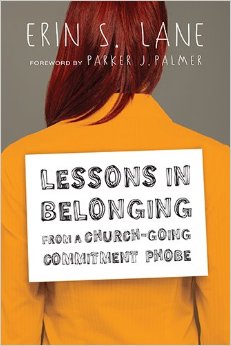 Lessons in Belonging From a Church-Going Commitment Phobe Erin S. Lane (IVP/Crescendo) $16.00 I first encountered the good writing of Ms Lane when she edited a wonderful collection of autobiographical sketches of young Christian women from various denominations and cultures. (It is called Talking Taboo and we raved about it when it came out.) I realized then that she had some Quaker connections, and friends with (sorry with the friend joke) perhaps the most famous Friend these days, Parker Palmer. To see Parker Palmer’s introduction here, on a book from the evangelical publisher IVP, is just so very sweet. I think this is going to be a great, great read; the “Crescendo” line is an imprint of women writers, but not necessarily just for women readers, I’m so interested in this. (In fact, two the rave blurbs on the back — Mark Labberton and Shane Claiborne — are men.) The others rave, too: Phyllis Tickle says it is “one of the clearest and certainly one of the most informing pictures I have seen to date of the generation of young adults who presently are shapping the twenty-first century church.” Lane is very smart, and her footnotes show off her wide and interesting reading — yay! Her description of her varied church experiences (she graduated from divinity school, works in spiritual formation, and is married to a pastor) is simply stated: “It’s complicated.” I am sure you will enjoy this funny, smart book, and I am also sure that it’s wisdom about community and connection will be important for you. I’m eager to help get it well known and widely read.
Lessons in Belonging From a Church-Going Commitment Phobe Erin S. Lane (IVP/Crescendo) $16.00 I first encountered the good writing of Ms Lane when she edited a wonderful collection of autobiographical sketches of young Christian women from various denominations and cultures. (It is called Talking Taboo and we raved about it when it came out.) I realized then that she had some Quaker connections, and friends with (sorry with the friend joke) perhaps the most famous Friend these days, Parker Palmer. To see Parker Palmer’s introduction here, on a book from the evangelical publisher IVP, is just so very sweet. I think this is going to be a great, great read; the “Crescendo” line is an imprint of women writers, but not necessarily just for women readers, I’m so interested in this. (In fact, two the rave blurbs on the back — Mark Labberton and Shane Claiborne — are men.) The others rave, too: Phyllis Tickle says it is “one of the clearest and certainly one of the most informing pictures I have seen to date of the generation of young adults who presently are shapping the twenty-first century church.” Lane is very smart, and her footnotes show off her wide and interesting reading — yay! Her description of her varied church experiences (she graduated from divinity school, works in spiritual formation, and is married to a pastor) is simply stated: “It’s complicated.” I am sure you will enjoy this funny, smart book, and I am also sure that it’s wisdom about community and connection will be important for you. I’m eager to help get it well known and widely read. 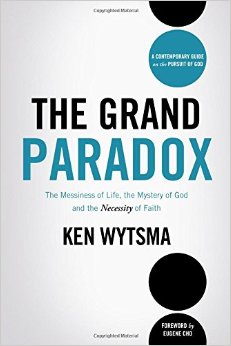 The Grand Paradox: The Messiness of Life, the Mystery of God, and the Necessity of Faith Ken Wytsma (foreword by Eugene Cho) $22.99 I don’t know if you are surprised to see a book on a mainstream evangelical publishing house with the word “paradox” in the title. It is profound, and it is a mature, good work. Called “a contemporary guide on the pursuit of God” and with a foreword by Eugene Cho (we gave his Overrated a Book of the Year award) this seems to include a powerful mix of reading the Word and reading the world, of ruminations on God and reflections on the brokenness of the world, of the mystery of God and the messiness of life. Ken Wytsma knows the messiness of life, well, too: he has organized the nationally-known “Justice Conference” and now knows missionaries, advocates and activists from all over this sad world. So he knows a lot about the necessity of faith as we walk on in this world, trying to make a difference. Not only is it great that the author is so widely read and broadly schooled, and it’s cool that the title includes words like mystery and paradox, there is this blurb on the back, by the grand Christian philosopher Nicholas Wolterstorff of Yale University:
The Grand Paradox: The Messiness of Life, the Mystery of God, and the Necessity of Faith Ken Wytsma (foreword by Eugene Cho) $22.99 I don’t know if you are surprised to see a book on a mainstream evangelical publishing house with the word “paradox” in the title. It is profound, and it is a mature, good work. Called “a contemporary guide on the pursuit of God” and with a foreword by Eugene Cho (we gave his Overrated a Book of the Year award) this seems to include a powerful mix of reading the Word and reading the world, of ruminations on God and reflections on the brokenness of the world, of the mystery of God and the messiness of life. Ken Wytsma knows the messiness of life, well, too: he has organized the nationally-known “Justice Conference” and now knows missionaries, advocates and activists from all over this sad world. So he knows a lot about the necessity of faith as we walk on in this world, trying to make a difference. Not only is it great that the author is so widely read and broadly schooled, and it’s cool that the title includes words like mystery and paradox, there is this blurb on the back, by the grand Christian philosopher Nicholas Wolterstorff of Yale University: 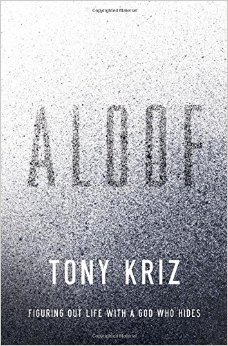 Aloof: Figuring Out Life with a God Who Hides Tony Kriz (Nelson) $15.99 Except for some early church Greek fathers and medieval mystics, there has not been a big tradition of many books written on the perceived absence of God. In our time, a few that have been written have been either glib (don’t worry, God’s presence will return) or theologically odd. Some shine: Still by Lauren Winner and Learning to Walk in the Dark by Barbara Brown Taylor are personal favorites, although both are fairly artful memoirs, telling the stories of their own unique journeys of faith and the experience of the absence of God. I don’t quite know anyone who has written directly and clearly and faithfully about this hard quandary. You may know Tony Kirz as Tony the Beat Poet from the famous Blue Like Jazz. His first good book, mostly a memoir, Sinners and Other Wise Men, got a rave review from us here and we still gladly stock it. (What a story!) Aloof has plenty of rave reviews itself, from authors I respect from John Pattison, Randy Woodley, Tim Soerens, Sean Gladding, Leroy Barber, Lisa Sharon Harper, and more. There are some edgy young post-evangelicals, some classy big shots (a Senator, a college President) and a few lively endorsements by those I don’t know, but they really were touched by it. I’m impressed, really impressed, and can’t wait to read it. (There are even some cool pen and ink drawings, too, enhancing it.) Maybe you should share it with somebody needing a book in an authentic conversational style that helps us process God being with us, and our awareness of that, in various stages of the life of faith. One reviewer says “no one will put this book down feeling cheated. It is a work of art!”
Aloof: Figuring Out Life with a God Who Hides Tony Kriz (Nelson) $15.99 Except for some early church Greek fathers and medieval mystics, there has not been a big tradition of many books written on the perceived absence of God. In our time, a few that have been written have been either glib (don’t worry, God’s presence will return) or theologically odd. Some shine: Still by Lauren Winner and Learning to Walk in the Dark by Barbara Brown Taylor are personal favorites, although both are fairly artful memoirs, telling the stories of their own unique journeys of faith and the experience of the absence of God. I don’t quite know anyone who has written directly and clearly and faithfully about this hard quandary. You may know Tony Kirz as Tony the Beat Poet from the famous Blue Like Jazz. His first good book, mostly a memoir, Sinners and Other Wise Men, got a rave review from us here and we still gladly stock it. (What a story!) Aloof has plenty of rave reviews itself, from authors I respect from John Pattison, Randy Woodley, Tim Soerens, Sean Gladding, Leroy Barber, Lisa Sharon Harper, and more. There are some edgy young post-evangelicals, some classy big shots (a Senator, a college President) and a few lively endorsements by those I don’t know, but they really were touched by it. I’m impressed, really impressed, and can’t wait to read it. (There are even some cool pen and ink drawings, too, enhancing it.) Maybe you should share it with somebody needing a book in an authentic conversational style that helps us process God being with us, and our awareness of that, in various stages of the life of faith. One reviewer says “no one will put this book down feeling cheated. It is a work of art!”